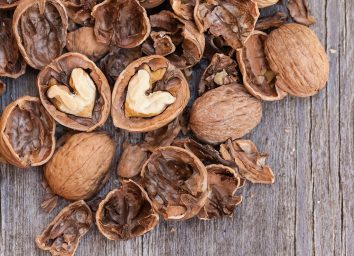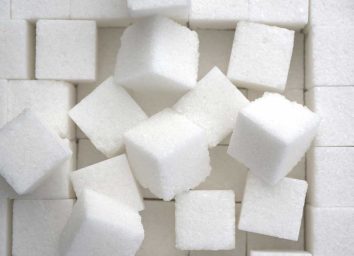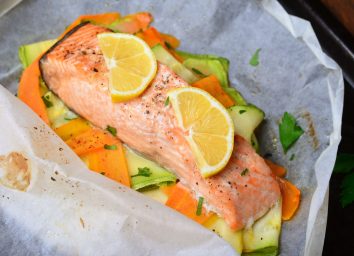The 50 Foods That Have Been Linked to Heart Disease
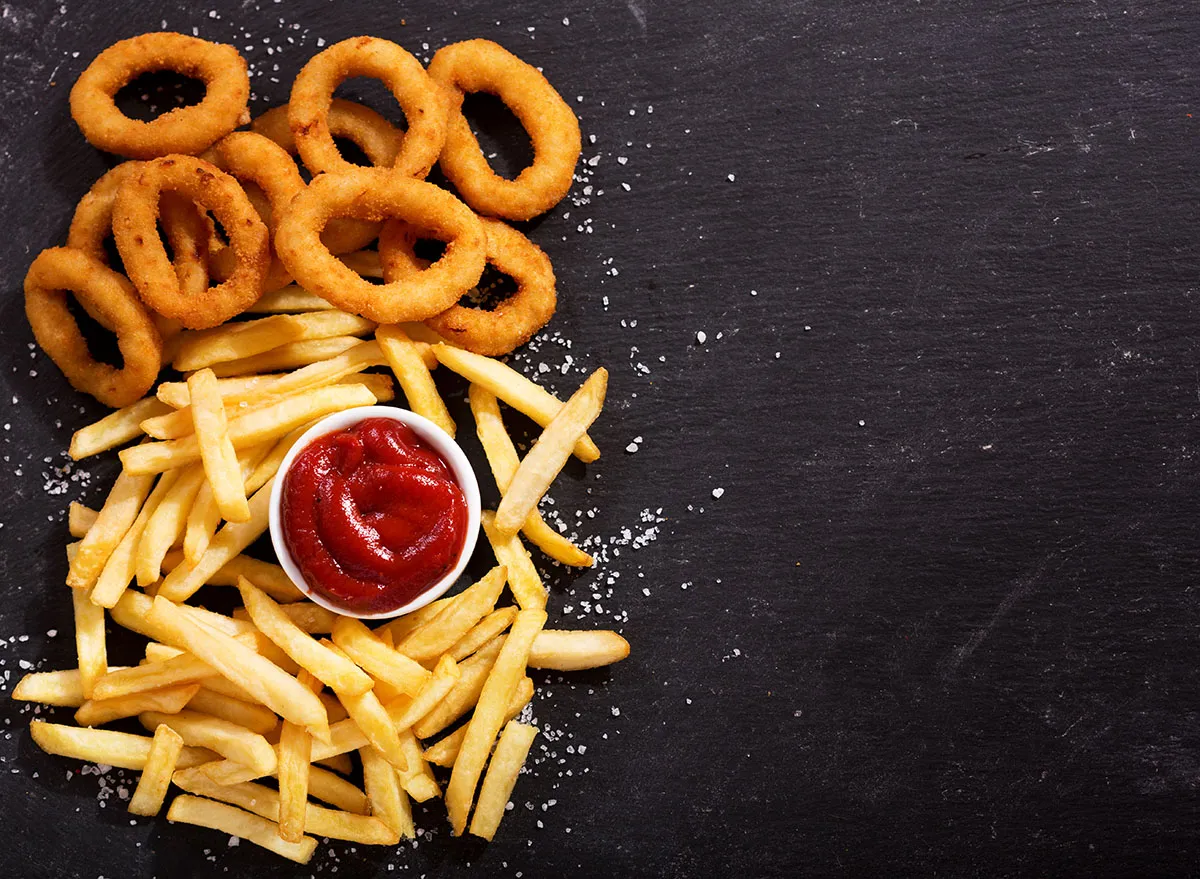
According to the Centers for Disease Control and Prevention, heart disease accounts for about 655,000 Americans’ deaths each year—claiming one life every 36 seconds. Those are some scary numbers, but there’s something you can do to help avoid this ever happening to you. And that’s by looking at what you eat more closely.
Granted, you’re also going to want to get a bit more physical, too. The American Heart Association (AHA) recommends engaging in moderately intense aerobic exercise for at least 150 minutes (so 2.5 hours) per week or 75 minutes of intense aerobic activity weekly in addition to moderate- to high-intensity strength training two days a week.
But back to the food! An easy first step you can take to drastically improve your cholesterol and blood pressure levels is by revamping your diet. You’ll want to focus on adopting a diet that’s full of colorful fruits and vegetables, fiber-rich whole grains, low-fat dairy, skinless poultry and fish, nuts, legumes, and non-tropical vegetable oils like olive oil. The heart-healthy diet emphasizes fiber, omega-3s, and lean protein, and it shuns saturated fats, trans fats, as well as excess sodium and sugar.
So what foods are a no-go? Read on to uncover what you should avoid to keep your heart pumping properly, and then replace these fridge offenders with heart-healthy foods instead like The 7 Healthiest Foods to Eat Right Now.
Candy
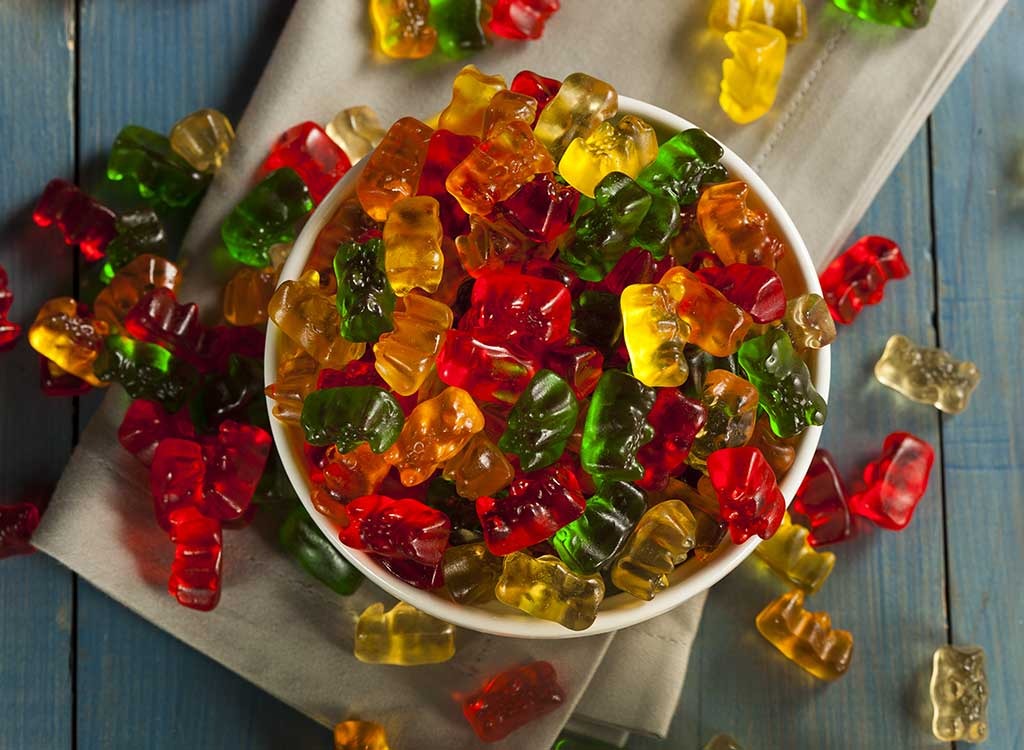
Americans consume a staggering 22 pounds of candy a year. While most of it is chocolate, we doubt the population is picking a heart-healthy 70% dark chocolate bar over a Snickers every time. Whether you’re grabbing a lollipop at the doctor’s office or popping a handful of M&Ms after lunch, candy is basically straight-up sugar in every shape and form—and it can increase fatty deposits, putting you at risk for heart disease. If you find your willpower silenced by your sweet tooth more often than not, put these tips to cut back on sugar to good use.
Potato Chips
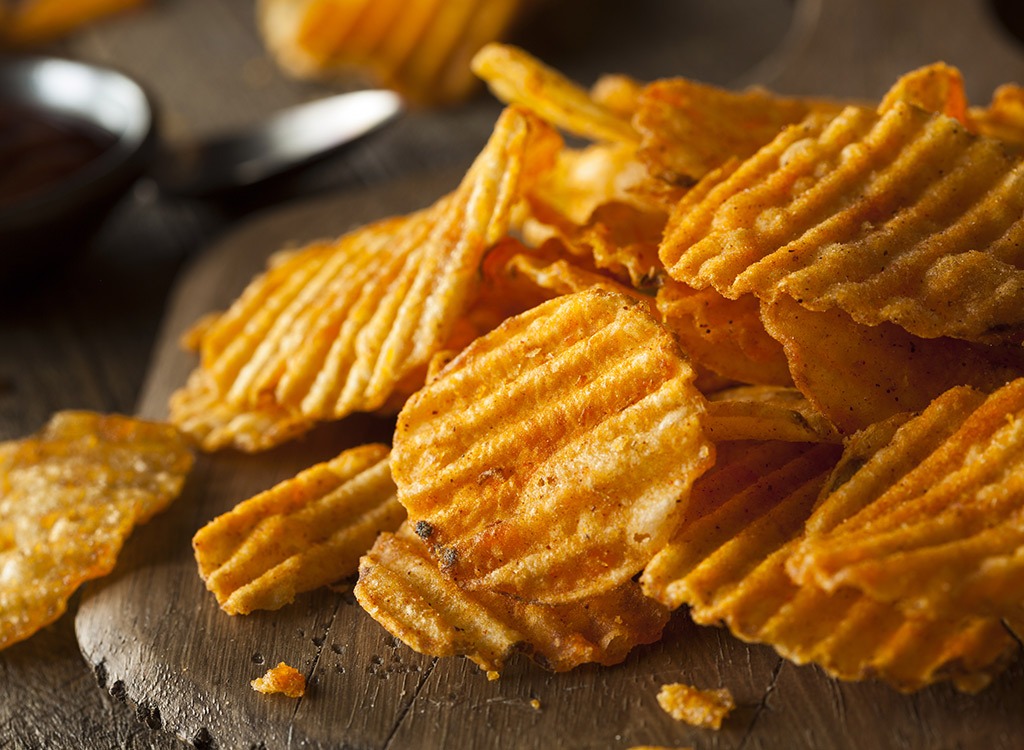
It’s no secret that potato chips aren’t a friend to a healthy eating plan. They’re high in calories, fat, and sodium—and are especially hard to quit noshing on after just one serving. A low-sodium diet is essential for a healthy heart; the American Heart Association explains that eating over 2,300 milligrams (equivalent to one full teaspoon) of salt a day can increase your risk of high blood pressure—a serious risk factor for cardiovascular disease. Save your heart, and skip the crunchy salt-dusted spuds.
Pancake Syrup
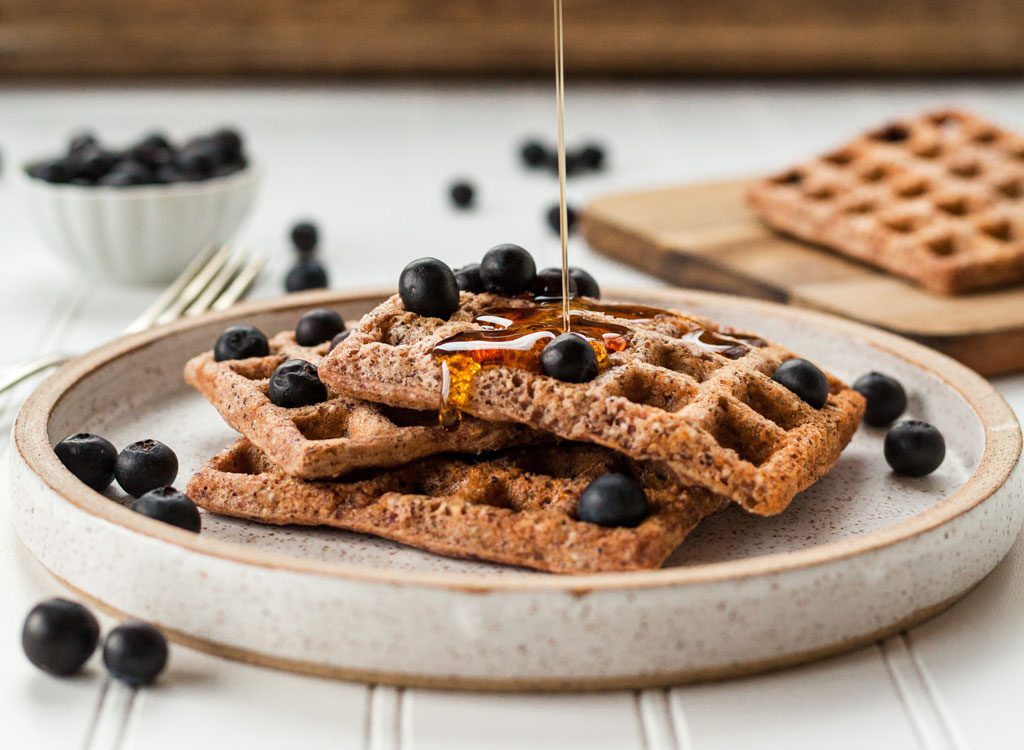
Most commercial pancake and waffle syrups are made with high fructose corn syrup instead of real maple syrup. According to Harvard Medical School, consuming too much fructose can lead to an increase in blood triglycerides, which increases blood pressure, LDL cholesterol, and taxes your ticker and arteries.
Canned Soups
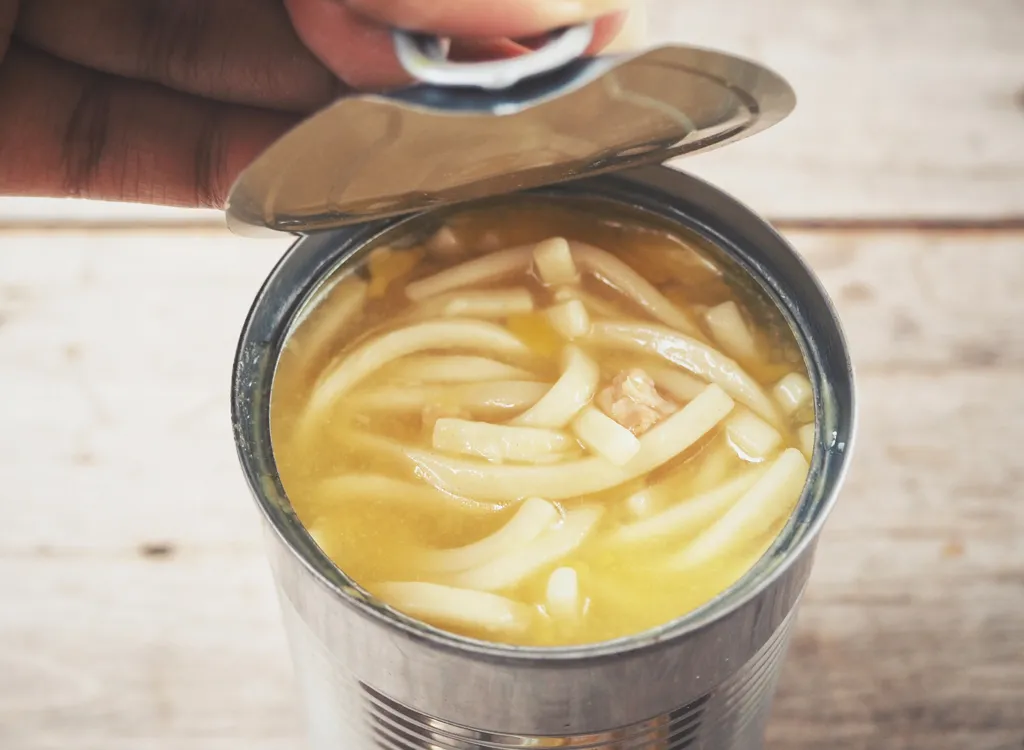
Canned soups may provide a convenient lunch when you’re short on time or ingredients, but despite the produce packed inside, they’re far from heart-healthy thanks to their high sodium content. Get this: Campbell’s Chunky Creamy Chicken and Dumplings Soup packs in 890 milligrams per serving—that’s just under 40% of the daily sodium limit recommended by the Food and Drug Administration (FDA)!
Coffee Creamers

Snoop through the ingredients on that bottle of Coffee-Mate in your fridge or the powdered version in your pantry, and you’ll notice mono- and diglycerides on the list. These man-made fatty acids contain trace levels of trans fats, which can increase your harmful LDL cholesterol levels while decreasing your good HDL levels—a double whammy for heart disease. Stick to topping your morning joe with a humble splash of whole milk.
Cake
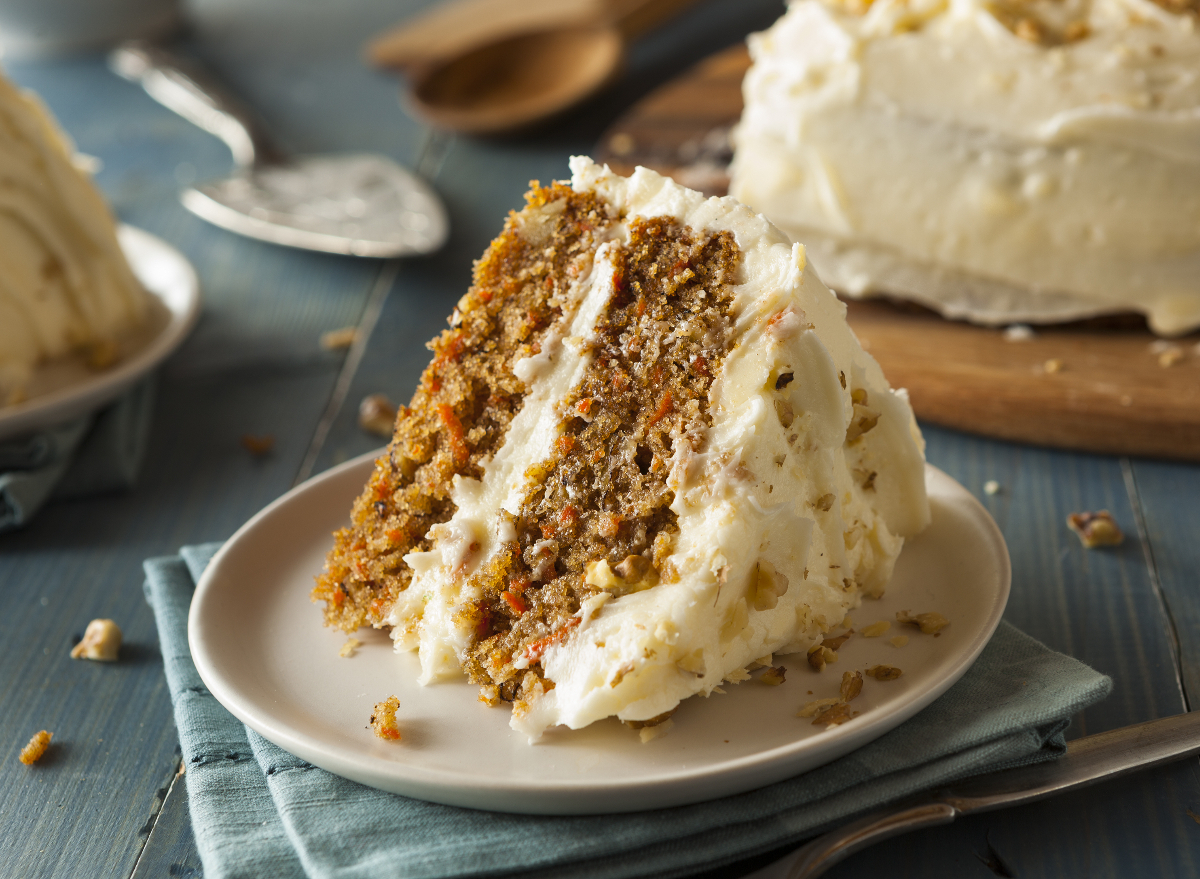
Leave the apple crumble and devil’s food cake on the store shelf where it belongs. Not only do commercially baked cakes contain boatloads of sugar but they may also come concocted with partially hydrogenated oils aka potential sources of trans fat. While trans fats have been banned from manufactured foods, you can still find them in baked goods and many restaurant foods.
Soda
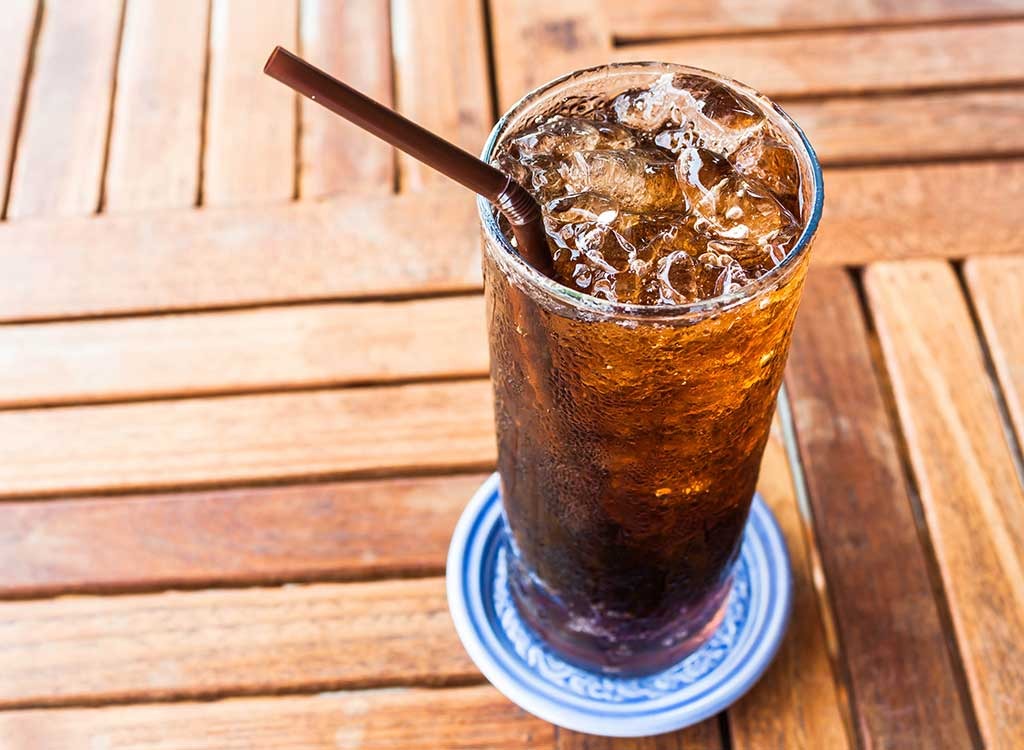
Cracking open too many cold ones isn’t only adding inches to your waistline—it’s also likely preventing your heart from pumping properly. “Drinking soda has serious consequences,” Adam Splaver, MD, clinical cardiologist and co-founder of NanoHealthAssociates warns us in 15 Foods That Tax Your Heart. “Regular soda promotes an insulin spike, which leads to weight gain and can cause a host of metabolic disorders. Beyond the sugars, soda has phosphoric acid which can promote osteoporosis and may be a cancer-causing agent. And the sugar can lead to inflammation, which causes cardiovascular disease.”
Diet Soda
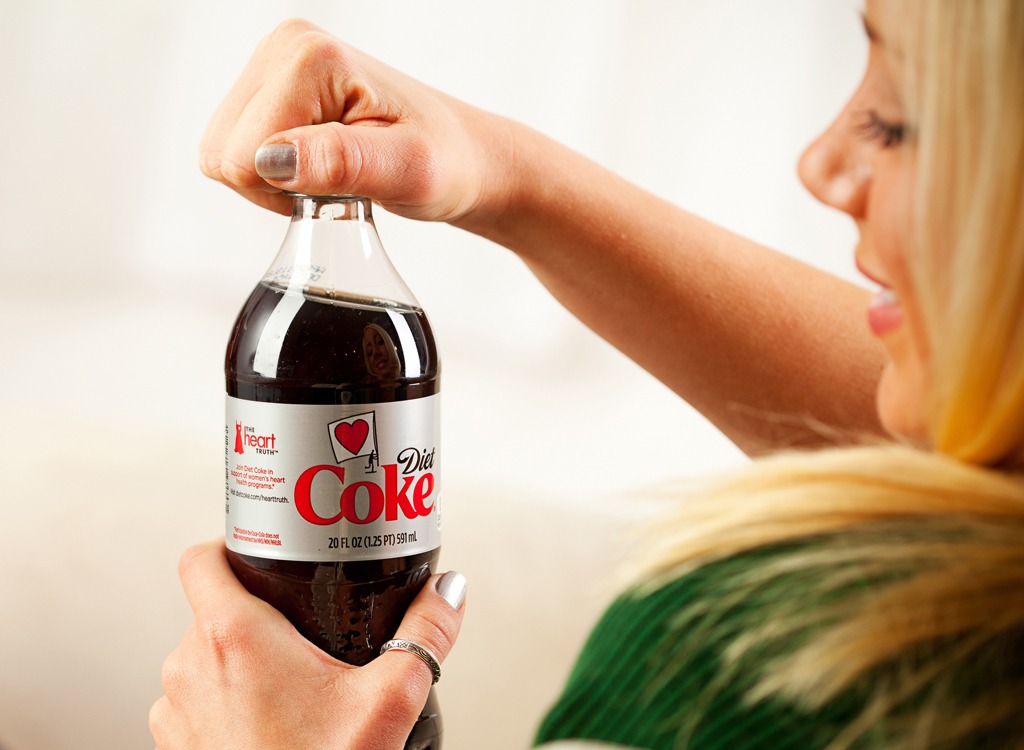
Think you’re doing your body a favor by replacing that can of regular soda with a Diet Coke? Sugar-free pops don’t contain actual sugar, but that doesn’t mean they’re any better for you than the real thing. “Artificial sweeteners can lead to the same spike and risk of metabolic disease; a recent study indicated that excessive drinking can counterintuitively lead to weight gain,” Splaver says. “Consuming diet soda will tell your pancreas to make more insulin, which will increase your adiposity (fat deposits) and risk of cardiovascular disease.”
Pie
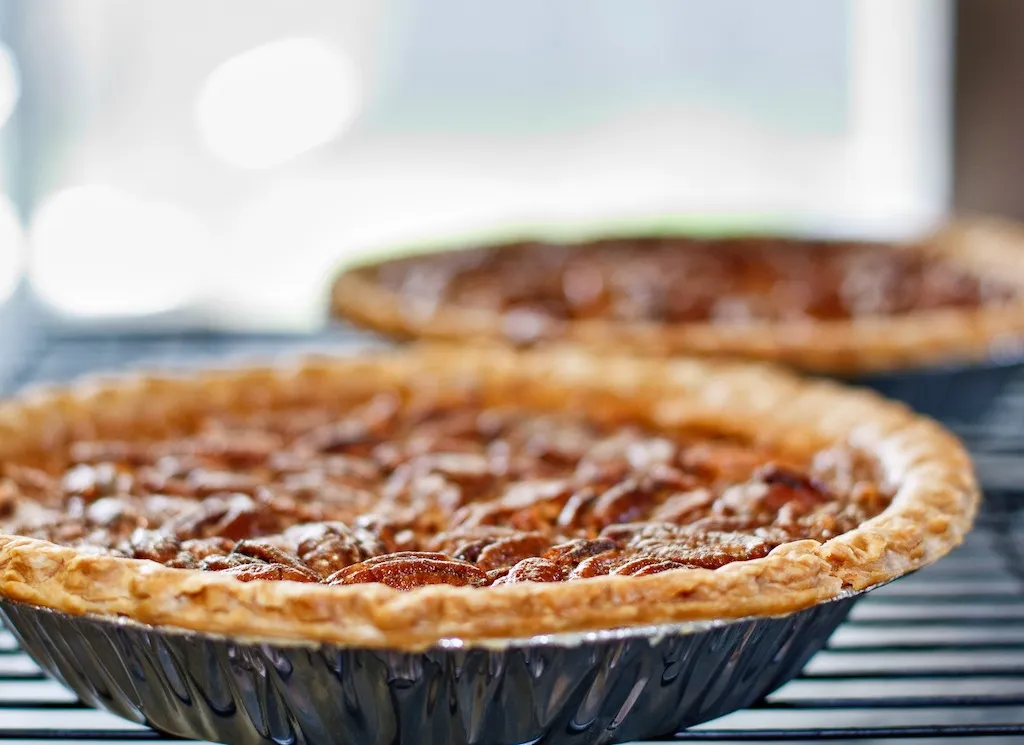
Consider this: Marie Callender’s Apple Pie contains 6 grams of saturated fat per serving, which amounts to about half of the American Heart Association’s daily recommendation in just one slice. Before placing an elegantly-latticed pie as the centerpiece of your dinner table, keep in mind that the dessert isn’t only detrimental to your heart—it’s also one of the worst foods for your brain.
White Bread
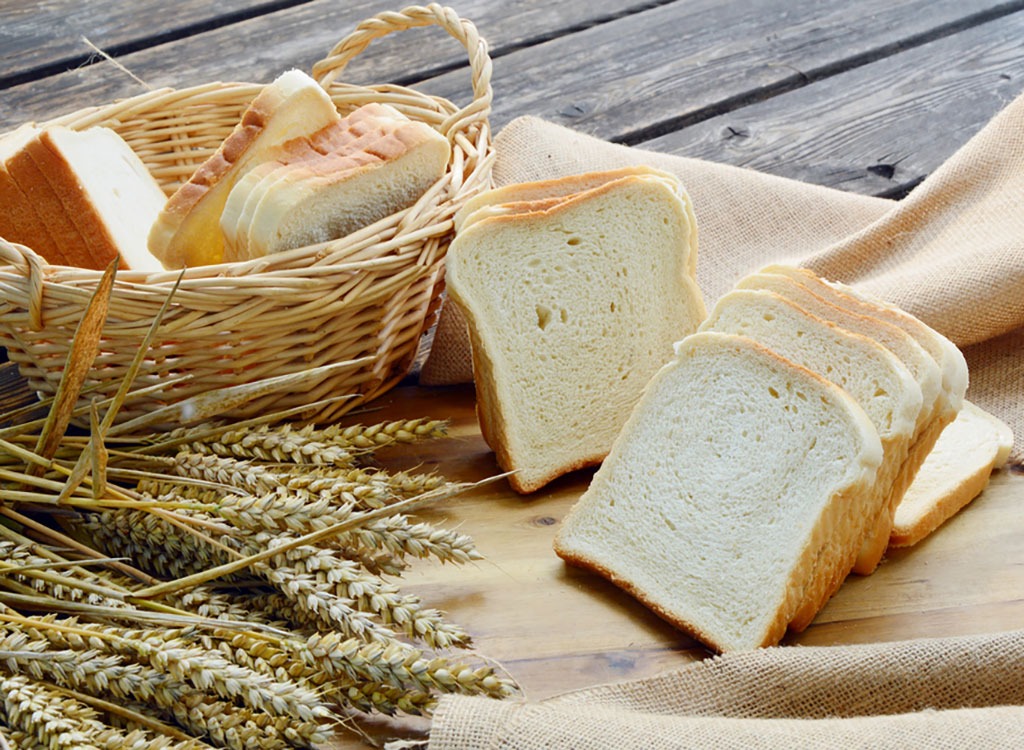
If you’re an avid reader of Eat This, Not That!, we wouldn’t be surprised if you’ve already swapped out that loaf of Wonder bread for fiber-rich Ezekiel. Not only will this switch help you fend off belly fat but it will also prevent heart disease. Unlike unadulterated whole grains, refined grains (those found in white bread) are stripped of fiber, minerals, phytochemicals, and healthy fats—all of which promote heart health.
Biscuits
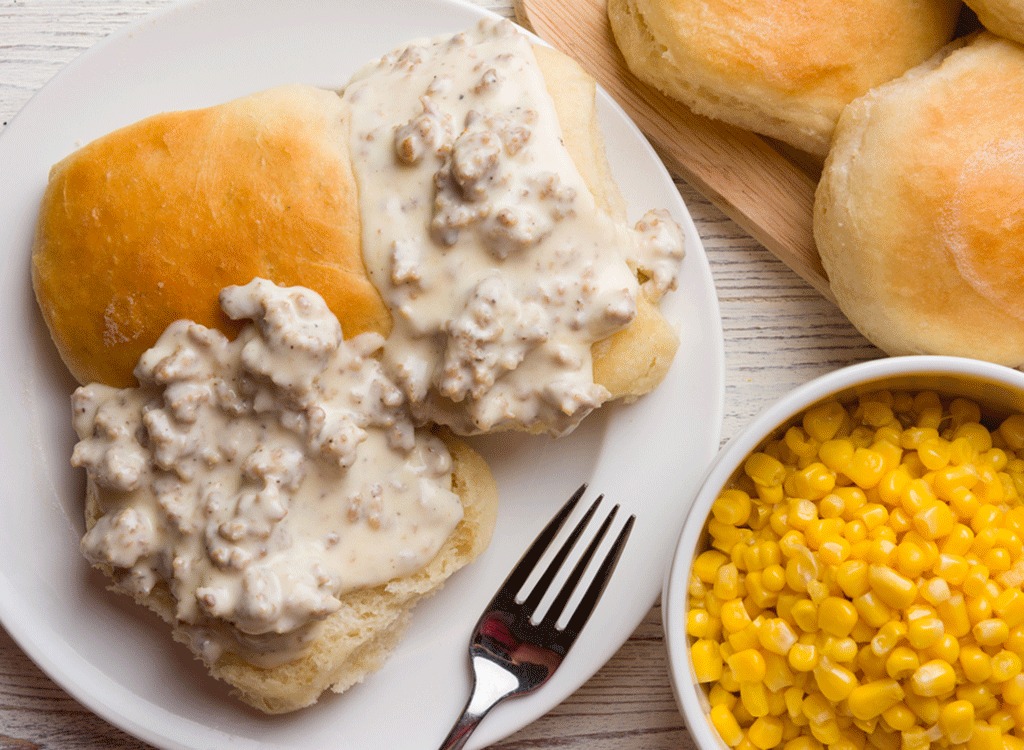
Processed foods are far from the cornerstone of a healthy diet, but buttery biscuits are one of the prime culprits of heart disease. They pack in a triple threat to your ticker: sodium, saturated fats, and barely any fiber.
Ice Cream

Indulging in a scoop of cookies and cream every so often isn’t off-limits on a balanced diet, but spooning out the whole pint in one sitting can definitely do damage. “Such foods lead to a surge in insulin and triglycerides, raise systolic blood pressure and heart rate, and cause blood platelets to become sticky and to clump, which can cause blockages in the small vessels of the heart and reduce blood flow to the heart. Those conditions could ‘eventually cascade to a heart attack,’ if blood flow to the heart doesn’t improve,” Gulati told The New York Times.
Margarine
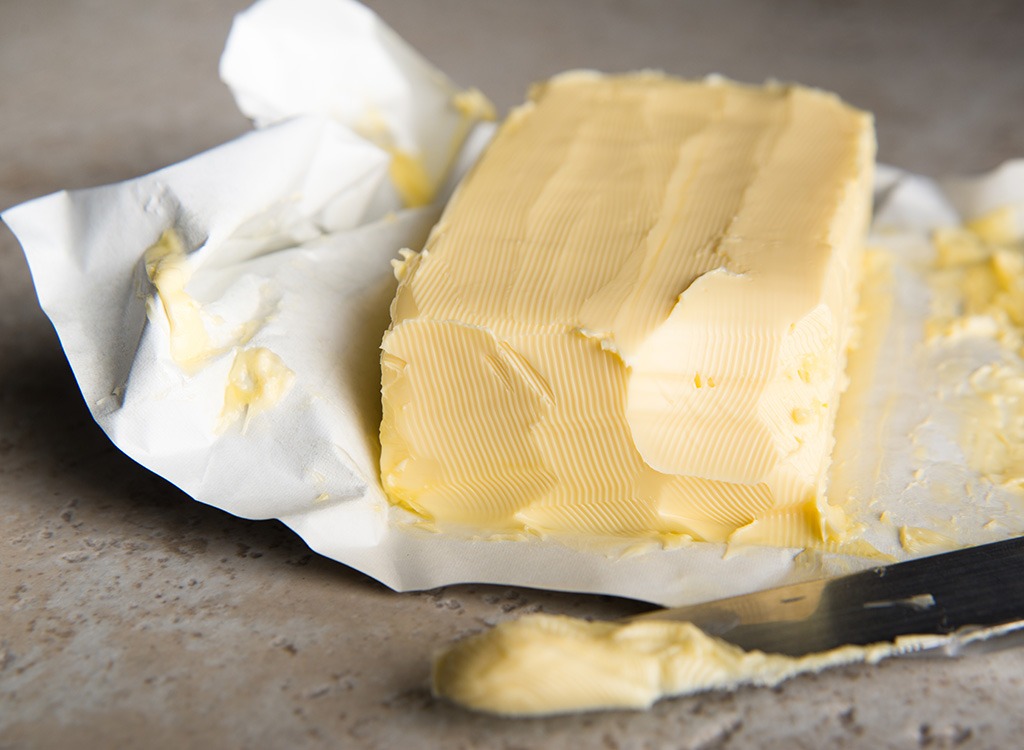
Margarine may be touted as a heart-healthy replacement for butter; however, certain tubs are anything but. If your margarine contains any trace of trans fat—look for mono and diglycerides, which can potentially contain trans fatty acids—toss it in the trash. Opt for cooking with sterol-rich olive oil instead.
Sugary Cereals
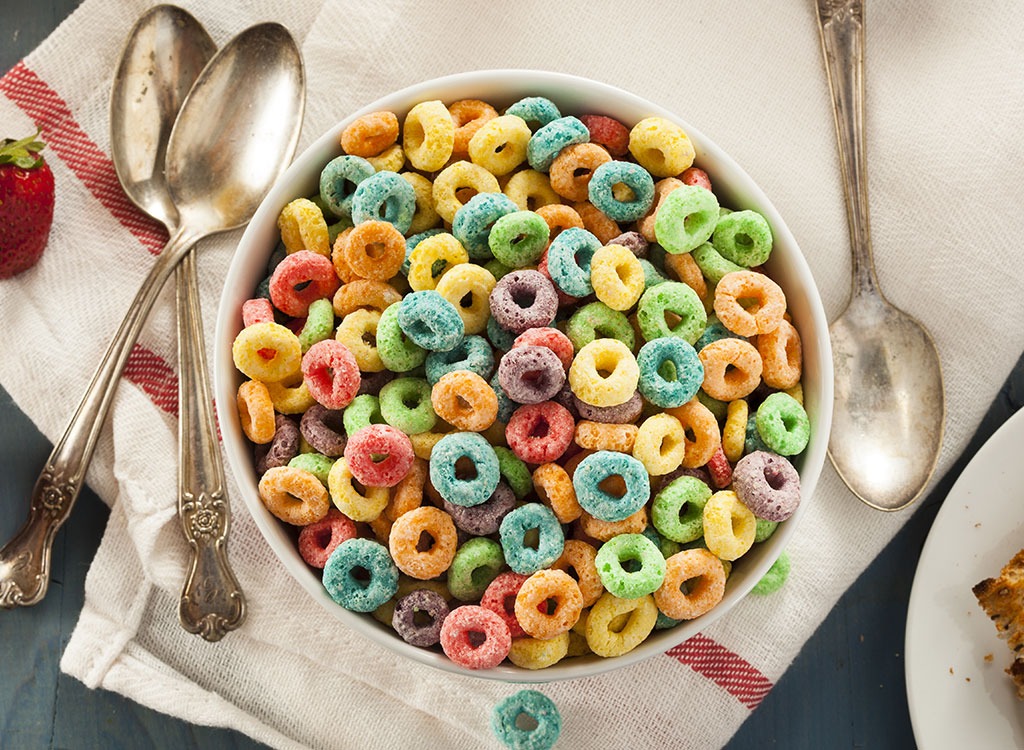
Pouring yourself a bowl of Froot Loops or Lucky Charms is undoubtedly not an ideal way to start your day, especially when it comes to caring for your pumper. Not only do most commercial or kid-centric cereals out there contain processed grains but they’re also injected with added sugars. The marshmallow-spiked stuff contains 10 grams of sugar, mostly from sugar and corn syrup.
White Rice
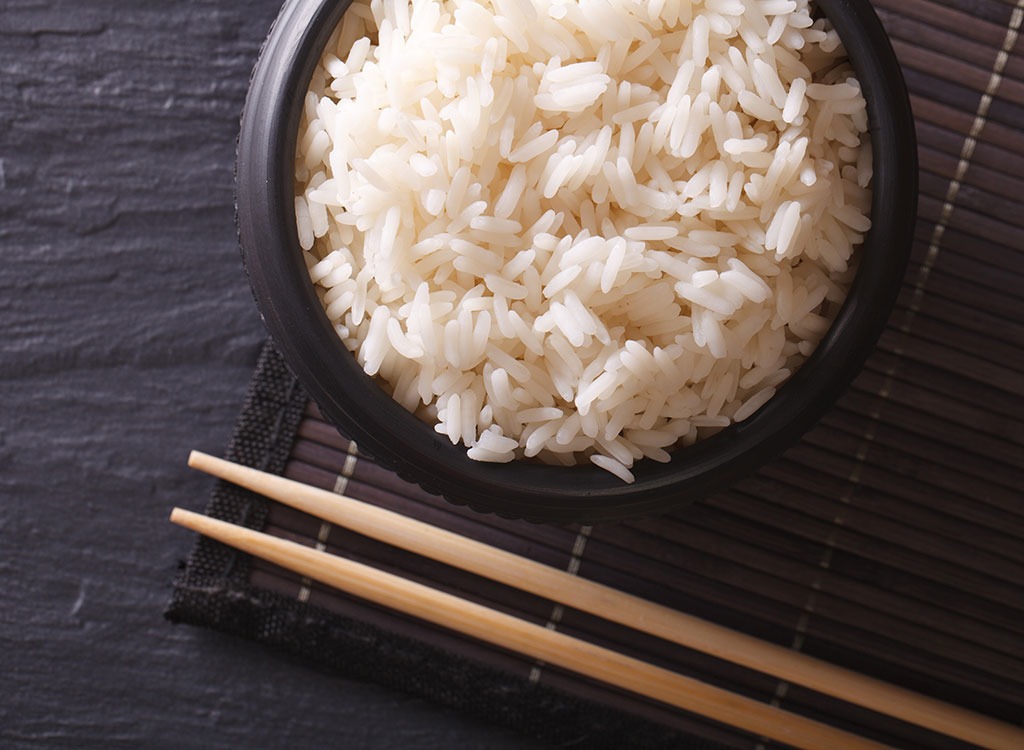
Next time you’re ordering a spicy tuna roll, swap the sticky white rice for brown rice. White rice undergoes processing, which strips the grain of its fiber- and nutrient-rich germ and bran. Consuming the stripped grain can lead to insulin spikes, which trigger weight gain—a risk for developing heart disease.
Ketchup
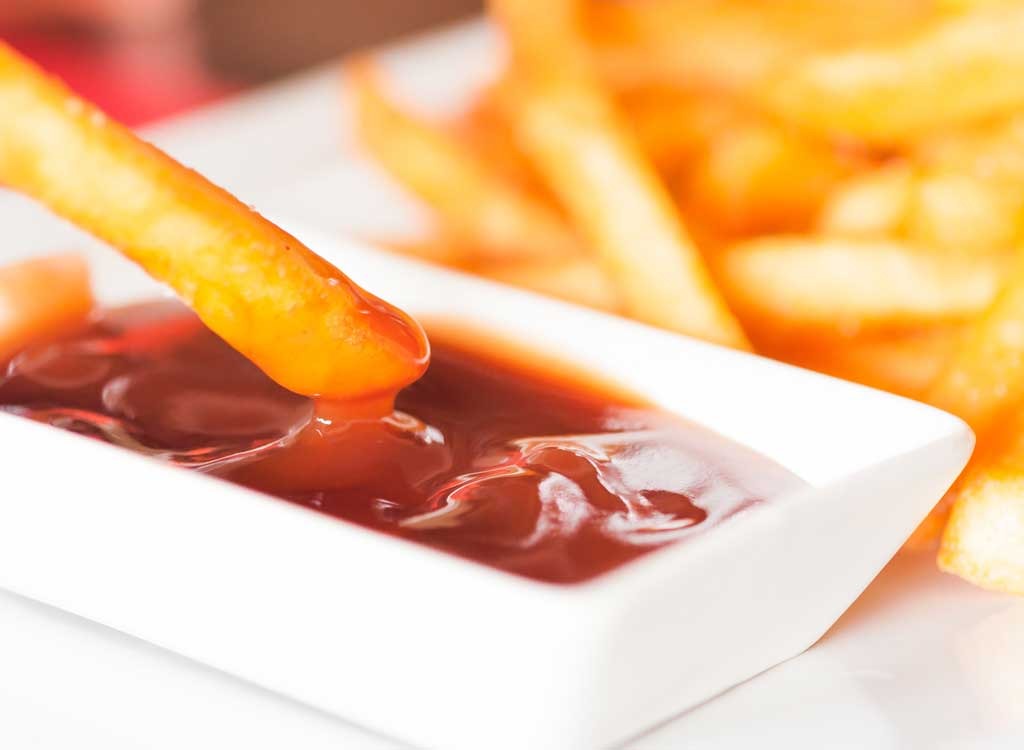
French fries’ favorite condiment is loaded with two heart-harming offenders. Your regular red Heinz bottle packs in 4 grams of sugar and 160 milligrams of sodium per tablespoon. And let’s be real: Who actually manages to achieve the perfect ketchup-smeared bite with just one tablespoon? Spreading the stuff on your sandwiches can easily hike up the sodium and sugar count without even contributing any satiating nutrition.
Croissants

Toasted croissants may upgrade any breakfast sandwich with their decadent fluffiness and smooth, buttery flavor. Unfortunately, the ingredients responsible for the coveted taste and texture are also deemed dangerous for your heart. A plain croissant from Dunkin’ Donuts is concocted with potentially trans fatty ingredients such as monoglycerides and saturated fat-filled modified palm oil in addition to corn syrup solids, fructose, and sugarg.
Flavored Yogurt
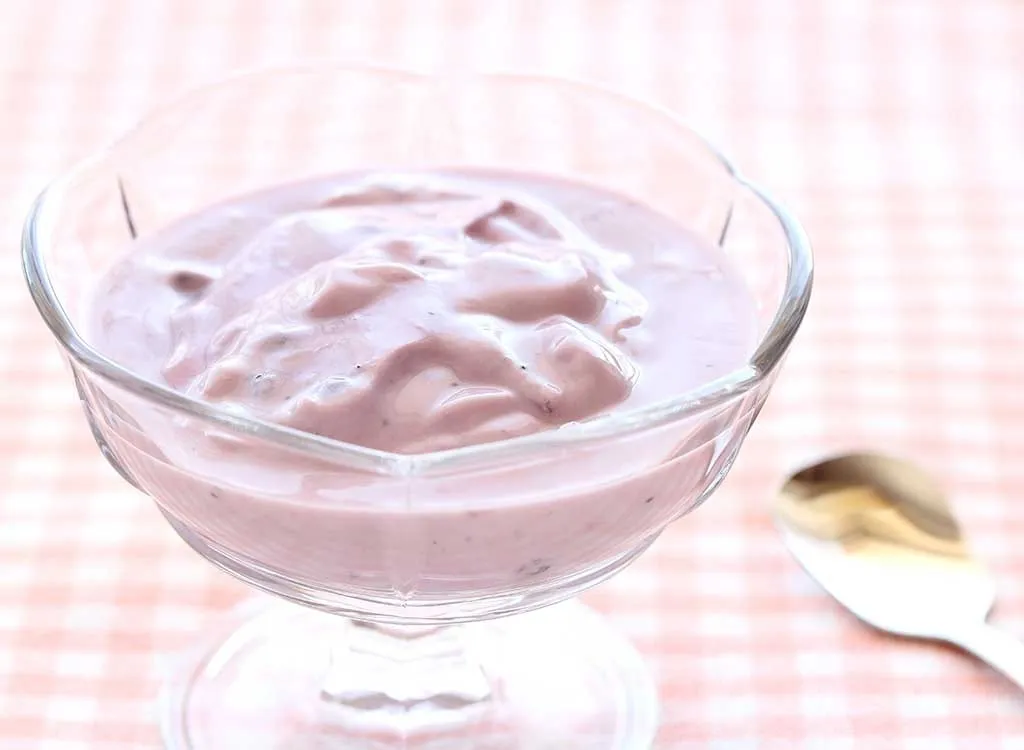
Thanks to its plethora of digestive-aiding probiotics, yogurt is a cornerstone of a gut-friendly diet. But there are plenty of sugar-filled tubs out there that not only will upset your tummy by feeding bad gut bacteria but also cause unsightly insulin spikes. When reaching for a protein-packed container, go for Greek or Icelandic skyr varieties—they have the most protein per ounce—and double-check that it has around 10 grams or less of the sweet stuff.
Teriyaki Sauce
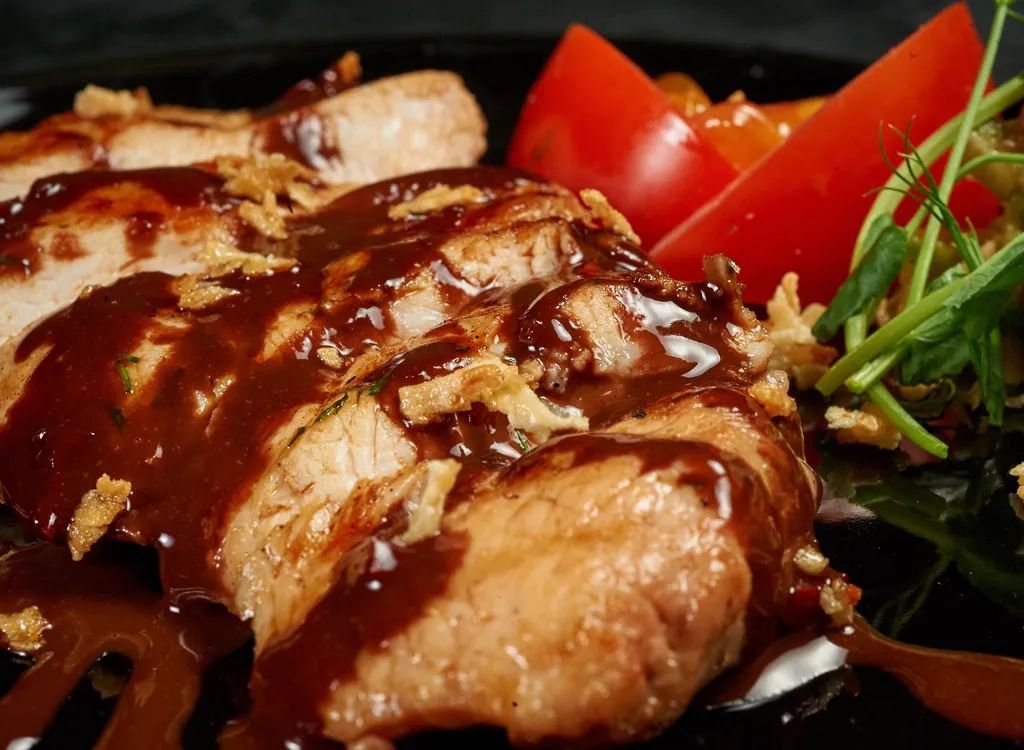
Slathering teriyaki sauce over baked chicken may replicate the takeout experience you crave, but it’s not doing any favors for your body. Many bottles are brimming with upwards of five grams of sugar per tablespoon—that’s more than your average ketchup! As with most condiments, it’s easy to go overboard and max out the recommended serving size, hiking up your intake of added sugars for the day.
Milkshakes
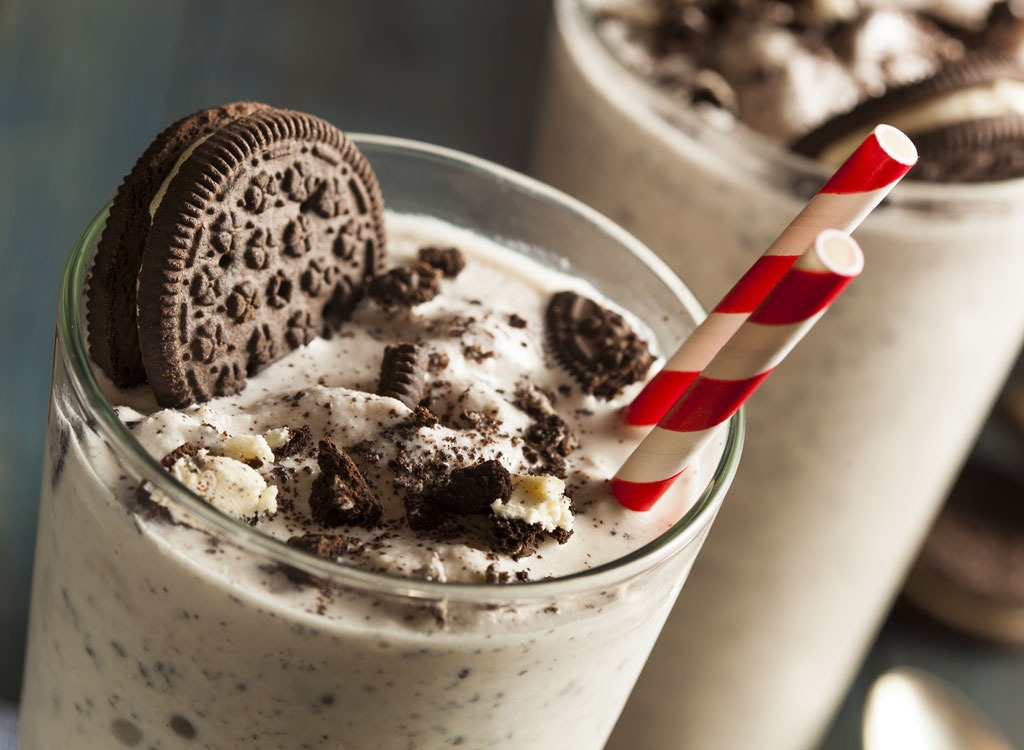
The frothy combo of smooth ice cream, milk, and thick flavored syrup may have been a key aspect of your childhood diet and the cause of those all-too-common sugar rushes. Nowadays, you know that drastic blood glucose spikes are bad news for both your belly and heart. Get this: Burger King’s chocolate hand-spun shake manages to sneak 112 grams of sugar—that’s about four and a half days’ worth of the sweet carb!
Deli Meats
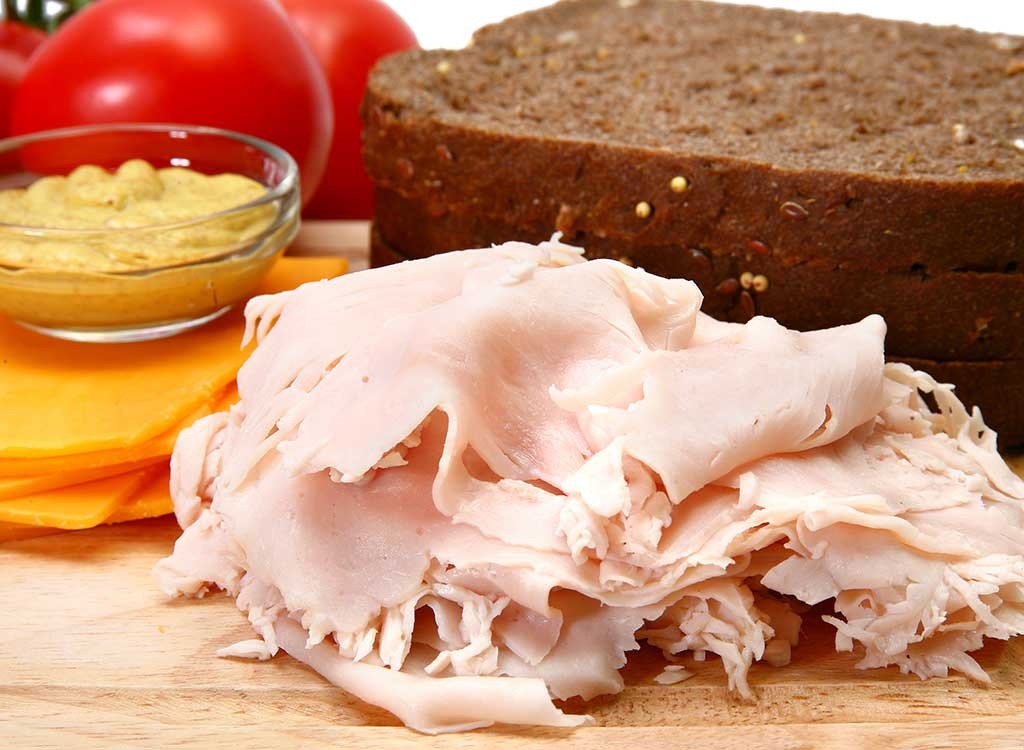
Don’t be fooled by the words “low-fat” scribbled on the label; even the reduced-fat versions of cured meats contain the preservative sodium nitrate. Nitrates are linked to potential heart disease risk and are known to promote inflammation—a chronic condition that’s directly linked to atherosclerosis.
Bacon
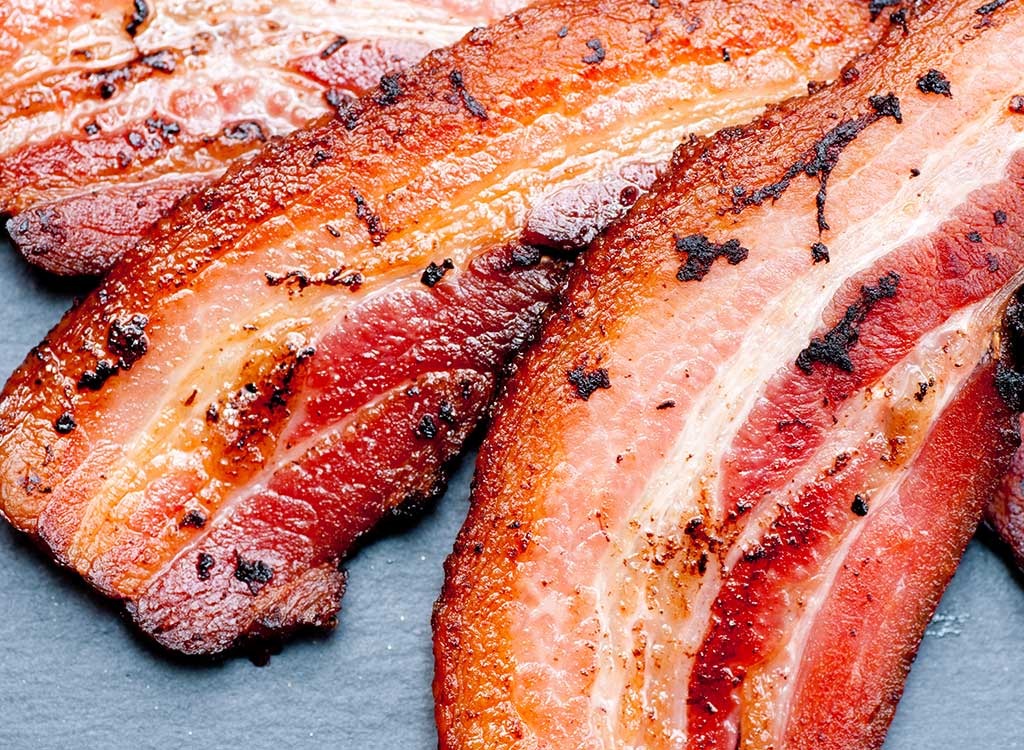
Just like many packaged deli meats, bacon also contains harmful nitrates and nitrites. Not only that, the sizzled breakfast meat is known to contain high amounts of saturated fats. If you’re craving a BEC before noon, grill a couple of lean low-sodium and nitrite-free turkey bacon strips instead.
Soy Sauce
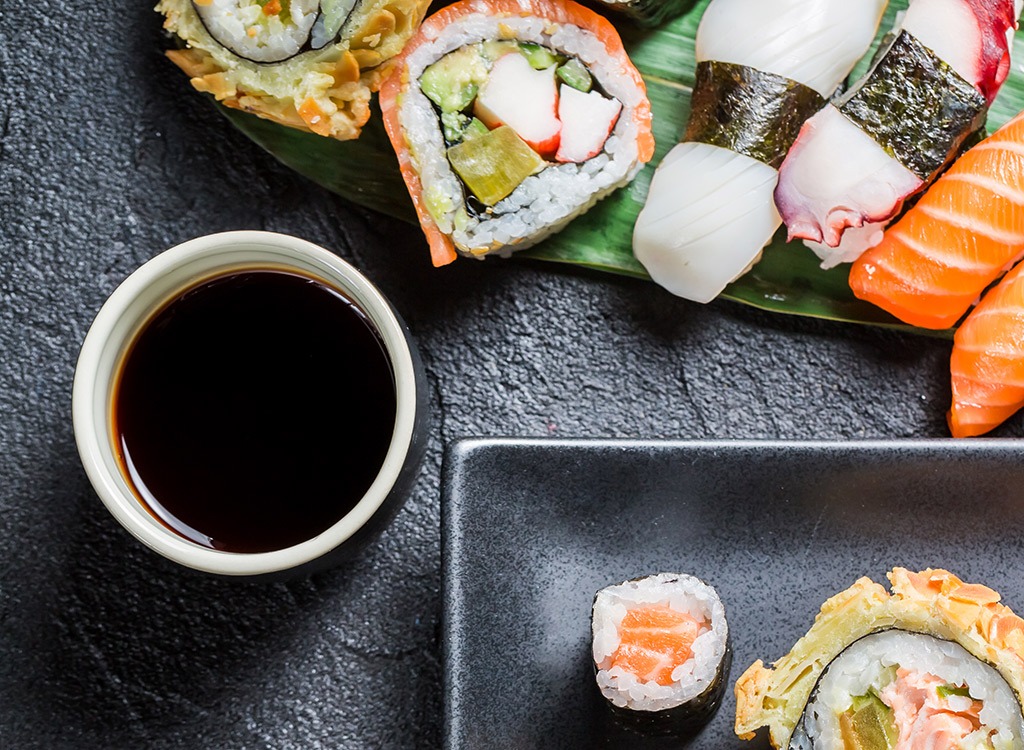
With upwards of 1,000 milligrams of sodium per tablespoon, it’s pretty clear why we’re deeming this dip a Not That! for heart health. If you’re hitting up your local Japanese joint, opt for skipping the soy sauce and topping your sushi with pickled ginger, which can aid in digestion and kill any bacteria that may be lurking in your salmon roll.
Bouillon Cubes
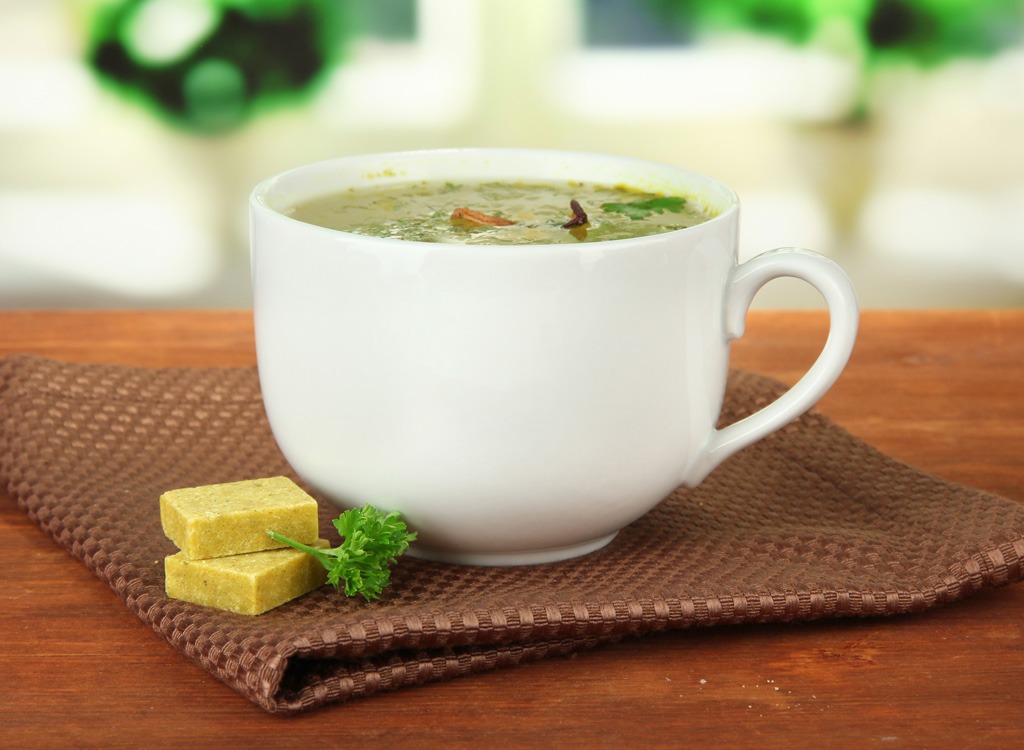
Instead of dropping a bouillon cube into a pot of slimming soup, opt for using collagen-packed bone broth or low-sodium veggie broth. Bouillon cubes often come full of MSG, a flavoring agent that’s been linked to insulin spikes and fat storage.
Sausage
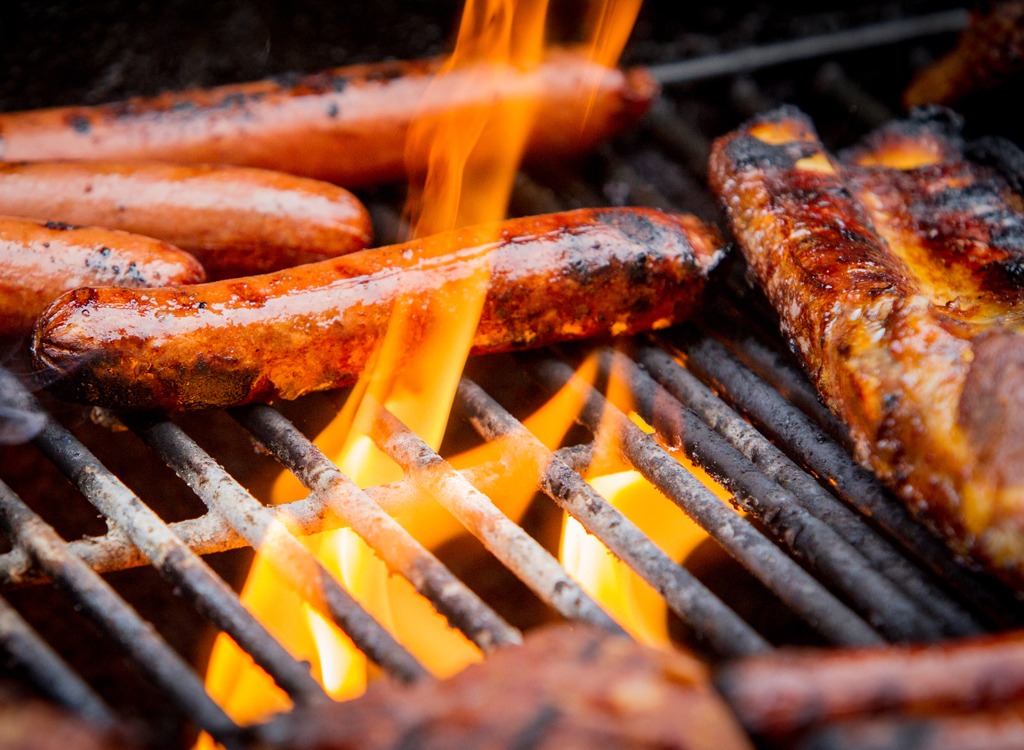
Processed meats such as “hot dogs, bacon, sausage, salami, and other deli meats, including deli ham, turkey, bologna, and chicken [were deemed] the worst types of meats for the heart” by long-term observational studies, according to Harvard Health. To make sure you’re getting enough of the metabolism-spiking macro, stock up on lean meats like turkey, chicken, and grass-fed beef in addition to fatty fish like salmon and herring.
Cheese
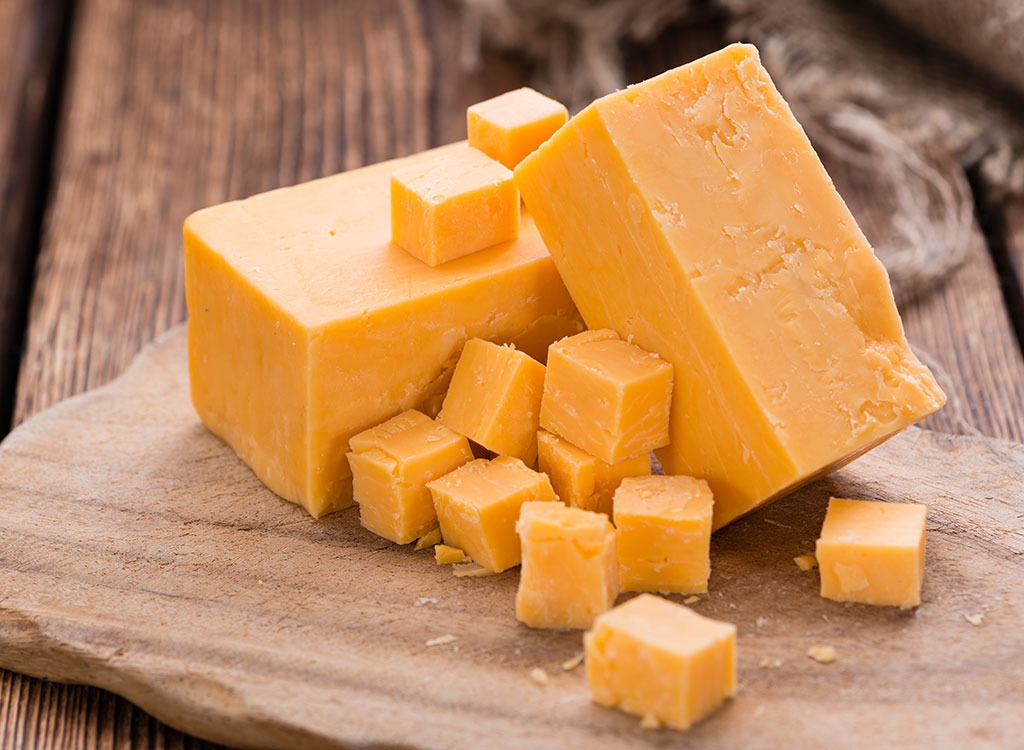
Total heartbreaker, we know! If you truly want to slash your risk of heart disease, cut the cheddar out of your sub sandwich and stop sneaking a slice of Havarti after dark! The creamy stuff is the largest contributor of saturated fat in the American diet, making up 8.5% of our average meals. Numerous studies have linked a high intake of this artery-clogging fat to heart disease, so you’re better off munching in moderation.
Bottled Fruit Juice
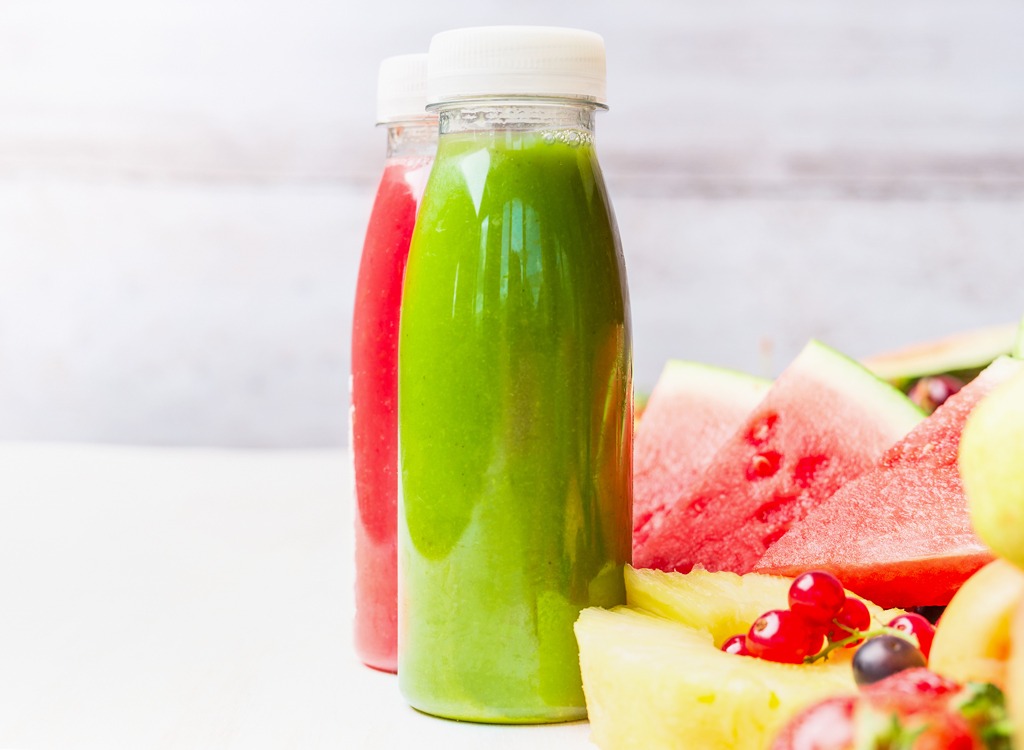
While 100% fruit juice may be a better pick than soda, the natural stuff can pack up to 36 grams of sugar per serving. By drinking your fruit and vegetables without the skins, you lose the essential fiber that could help normalize elevated blood lipids—a key risk factor for heart disease. Be careful of portion size—most bottles appear to be one serving, but most likely are two, thus doubling the calories and sugar grams that you may drink in one sitting.
Pizza
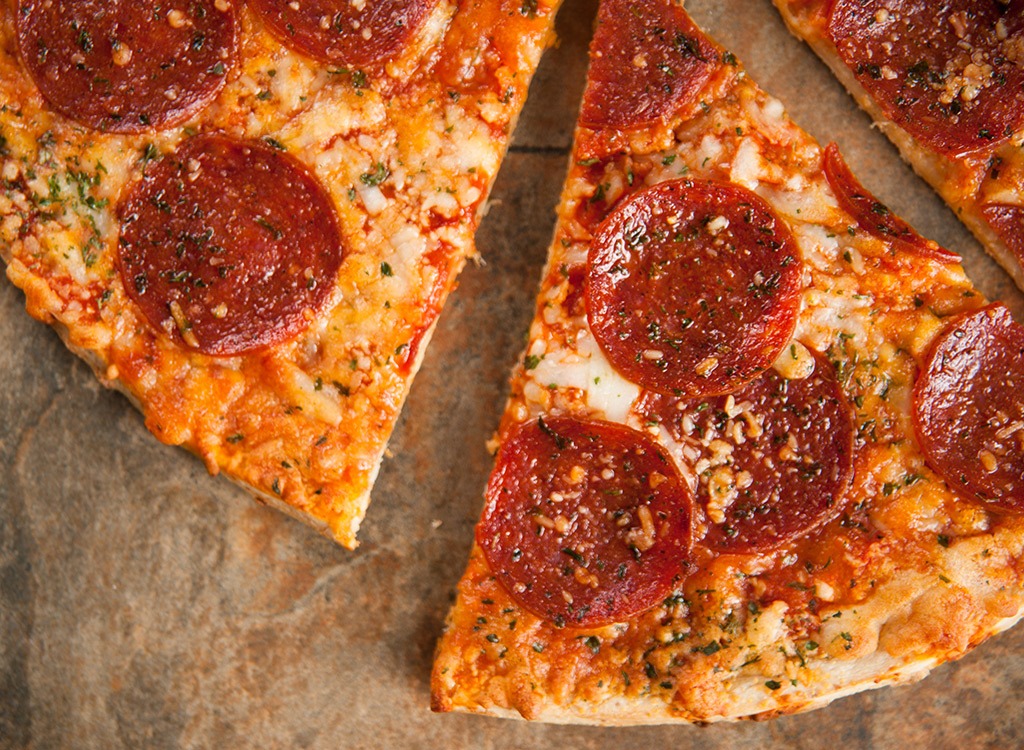
Following cheese, pizza is the second biggest contributor of heart-taxing saturated fat in the U.S. Rather than ordering a large pie for a movie night in, stick to just one slice, and pair it with a side salad to help promote satiety and up your intake of fiber—a macro that helps lower bad cholesterol and keep your ticker in top health.
French Fries
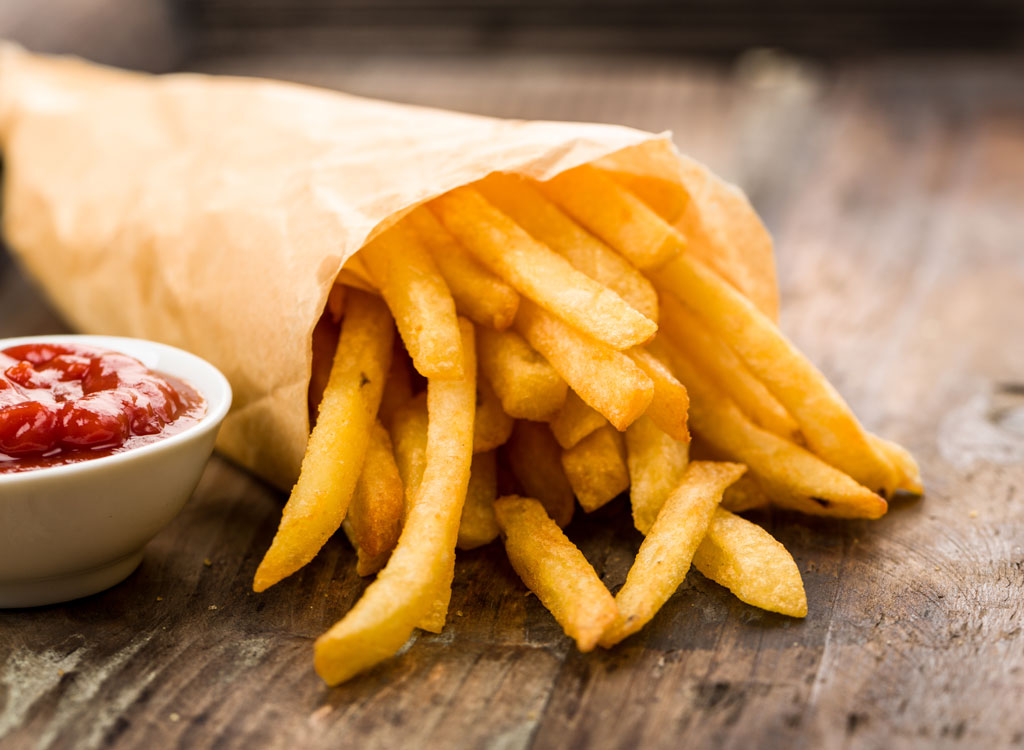
Anything deep-fried should be avoided on a heart-healthy diet, French fries included. Potatoes are already high glycemic, causing your blood sugar levels to spike. As you can imagine, dousing the spuds with hot oil and salt isn’t improving their nutritional profile. Instead of ordering fries on the side, opt for a baked potato with the skin on to reap taters’ magnesium and vitamins B6 and C.
Gravy
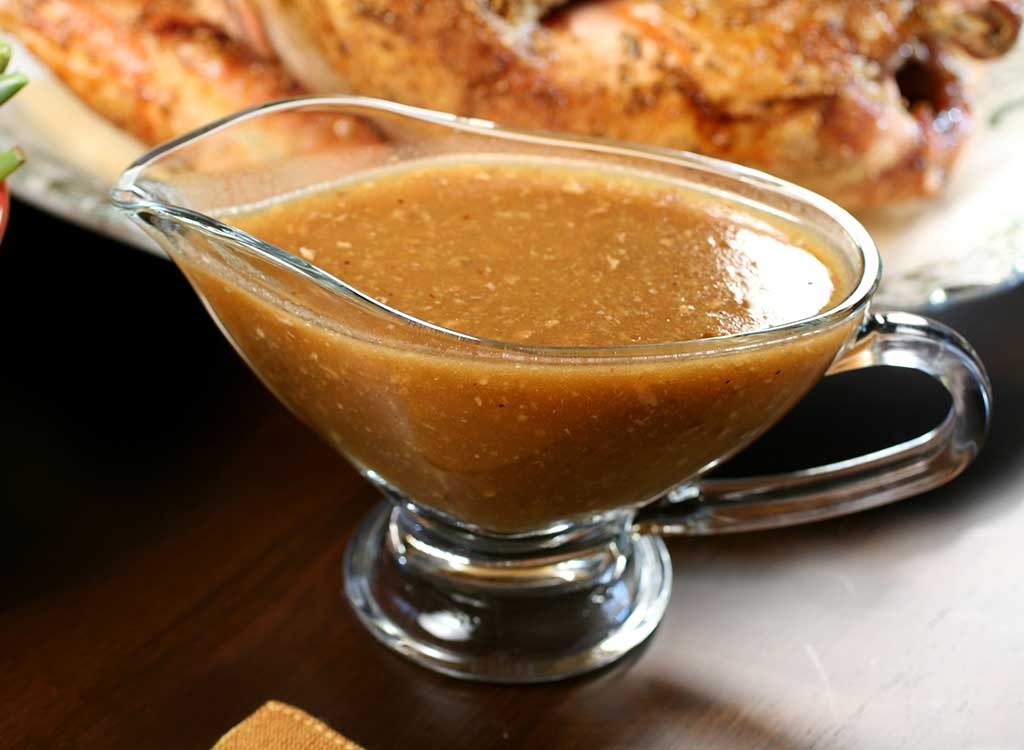
Sorry poutine lovers, gravy isn’t a heart-healthy sauce you should drizzle on top of anything. Why’s that? If you often pour a cup of Heinz Home Style Roasted Turkey Gravy over poultry, you’re contributing 920 milligrams of sodium to your dinner. To prevent heart disease, the FDA recommends no more than 2,300 milligrams of the crystals per day and using jarred gravy on the reg could easily inch you closer to that limit.
Cinnamon Buns
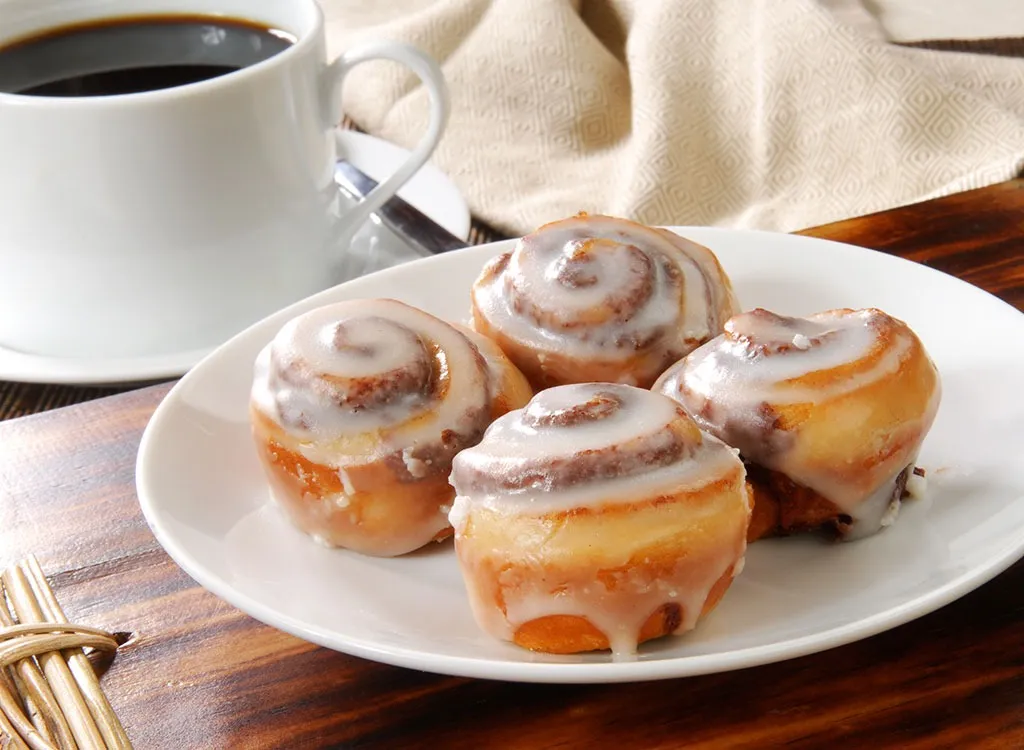
That heavenly smell of freshly baked dough, aromatic spice, and sweet glaze may tempt you to wake up to a cinnamon bun every morning—but that’s one heart-harming habit we can’t get behind. One of Pillsbury’s Cinnamon Rolls with Original Icing contains 320 calories, 53 grams of carbs, and 22 grams of sugar.
Steak
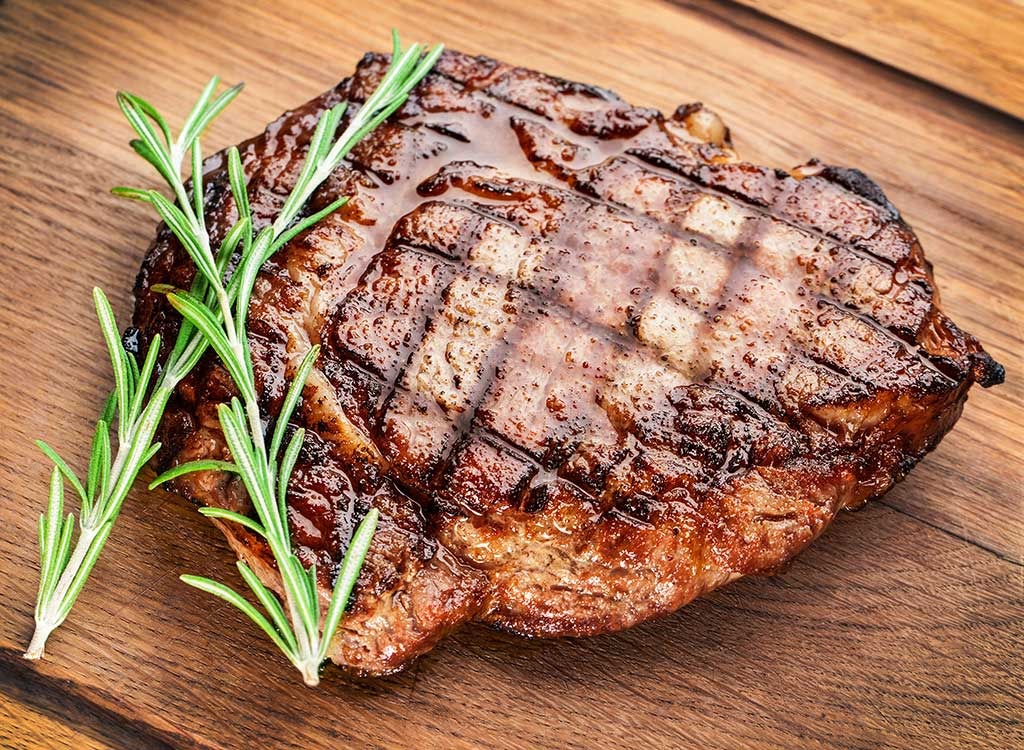
Save your heart, and skip that steakhouse visit. Choosing the fattiest cuts of meat (think porterhouse, ribeye, and T-bone) and pairing them with fat-laden mashed potatoes or creamed spinach may spell out a total dietary disaster. On the other hand, leaner cuts of meat—such as filet mignon, London broil, round or flank steak, sirloin tip, and tenderloin—weighing below 6 ounces are recommended by the AHA.
Brownies
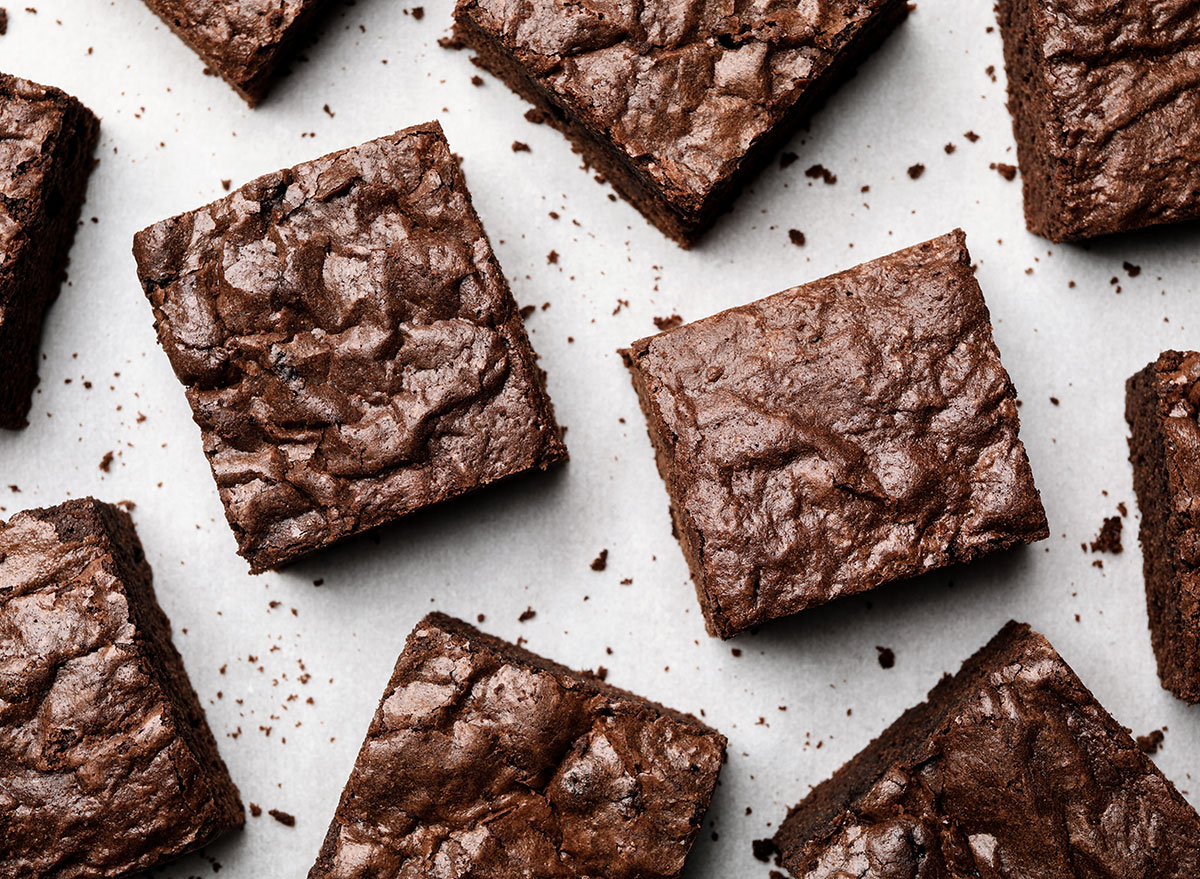
There are better ways to show appreciation than baking a fudgy batch of brownies for your buddies. If you desperately need your fix, swap the bleached flour for a fiber-rich mix of black beans and oatmeal, and opt for using a combo of maple syrup and stevia to sweeten things up.
Pasta Sauce
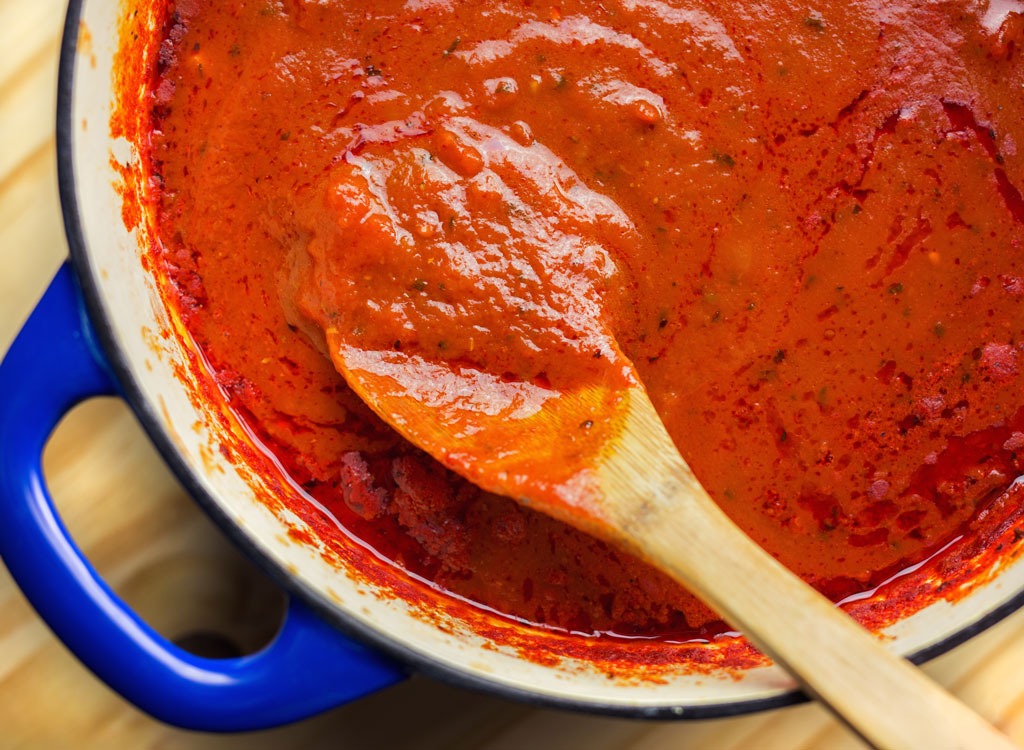
Much like ketchup, many jarred pasta sauces out there contain loads of sugar and salt. An easy way to bypass the bad stuff? Slather your whole-grain noodles with homemade red sauce, replete with cooked tomatoes’ LDL- and blood-pressure-lowering lycopene. Toss in some minced garlic and onions for an added burst of flavor and anti-inflammatory benefits.
Hot Dogs

Much like sausage, deli meats, bacon, and hot dogs are processed meats that you want to avoid on the regular because of their high saturated fat and nitrite content. Scored front-row seats to a baseball game? Skip the frankfurter, and dig into butter-free popcorn instead.
Vegetable Shortening
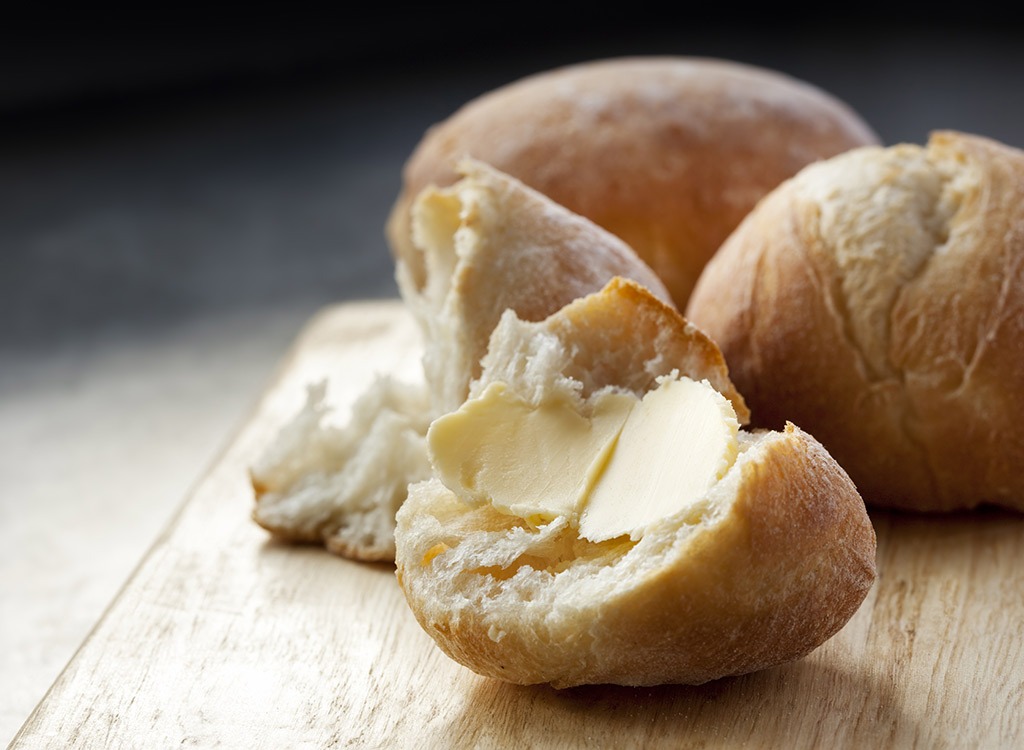
Since shortening hardens into a solid at room temperature, it’s mostly comprised of detrimental saturated fats. The Heart Foundation states that replacing just 5% of your daily calories from saturated fat with polyunsaturated fat—like those found in flax oil—reduces your risk of heart disease by an impressive 10%.
Muffins
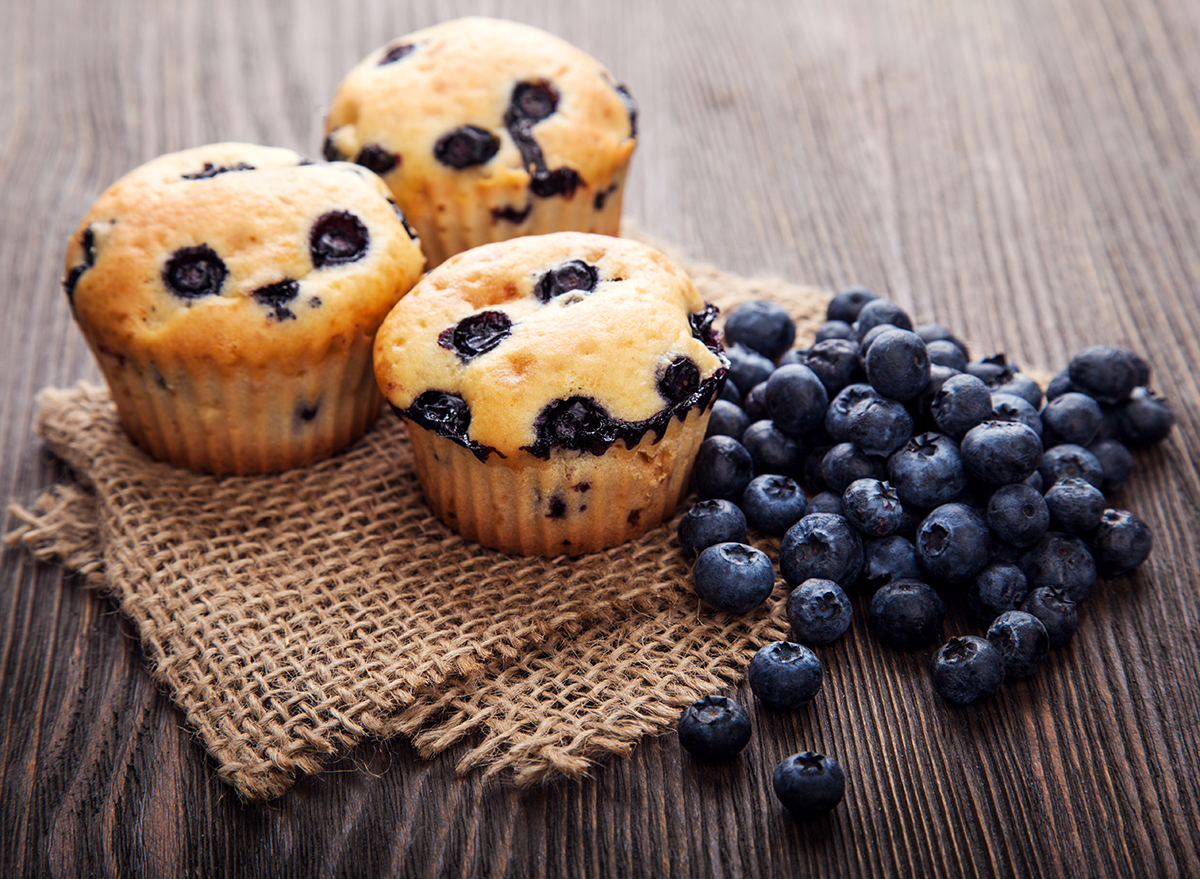
It’s no secret that consuming too many muffins can contribute to the eponymous term for the fat lurking around your midsection. Though you can argue that a buttered blueberry muffin satisfies the soul, this treat isn’t doing much good for your heart. The two main offenders? You guessed it: sugar and saturated fat!
Frozen Dinners
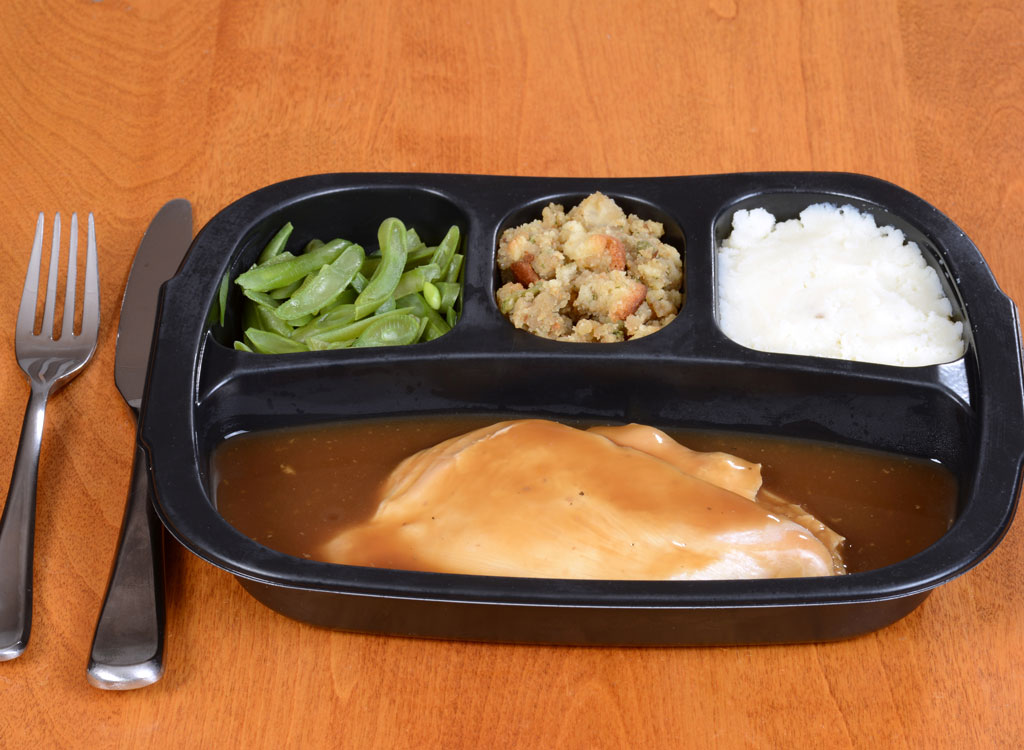
There’s no disagreeing that TV dinners are too tempting not to nuke when you’re short on time, but even some of the seemingly healthy frozen boxes are no-gos. Take Stouffer’s Fit Kitchen Sweet and Smoky BBQ dinner for example: Behind the 27 grams of protein and added veggies, the dish manages to pack in almost 1,000 milligrams of sodium and 16 grams of sugar—two dietary saboteurs.
Cheeseburgers
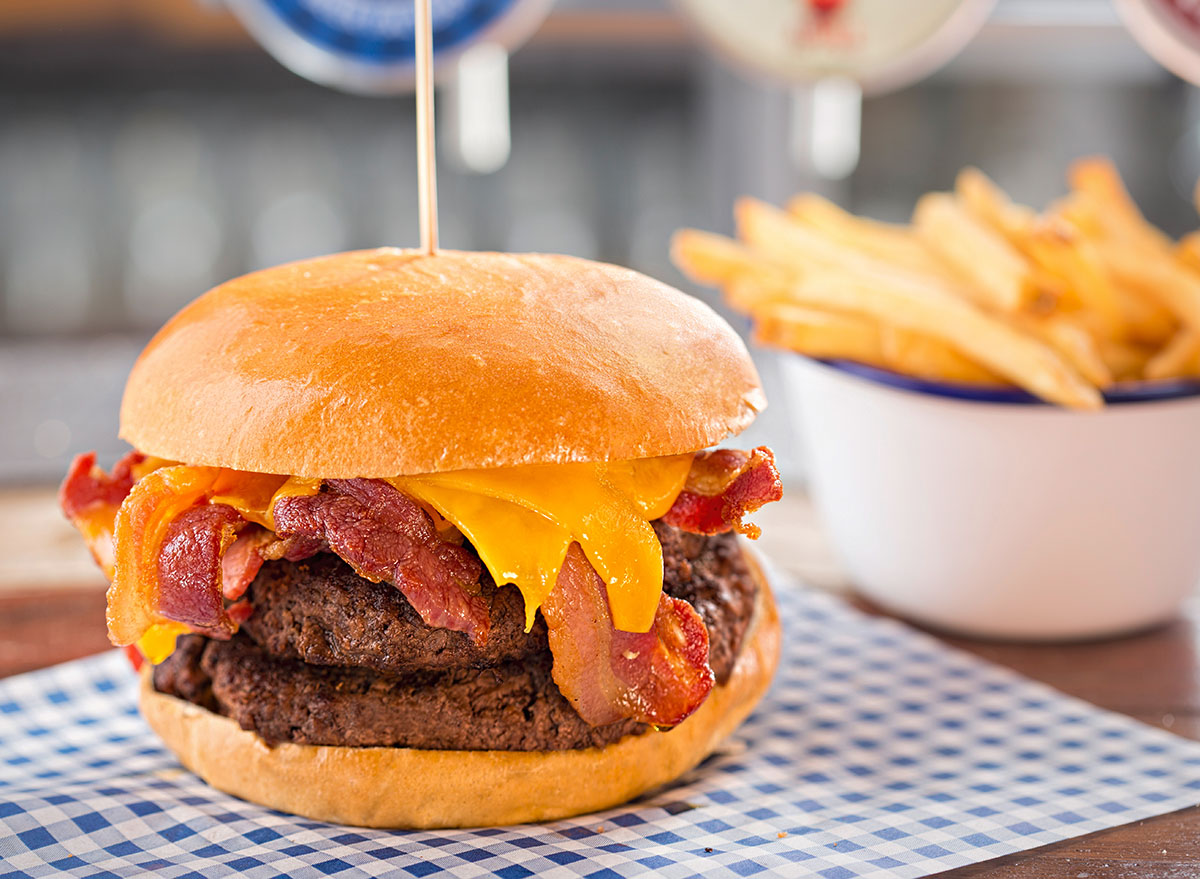
Two downright dietary demons lurk in this fast-food favorite: salt and saturated fat. While it’s clear that an oozing cheeseburger won’t help your ticker perform at its A-game, find out which ‘wich is OK to dig into from time to time in our report “The Best & Worst Burger From Every Popular Fast Food Chain.”
Chinese Takeout
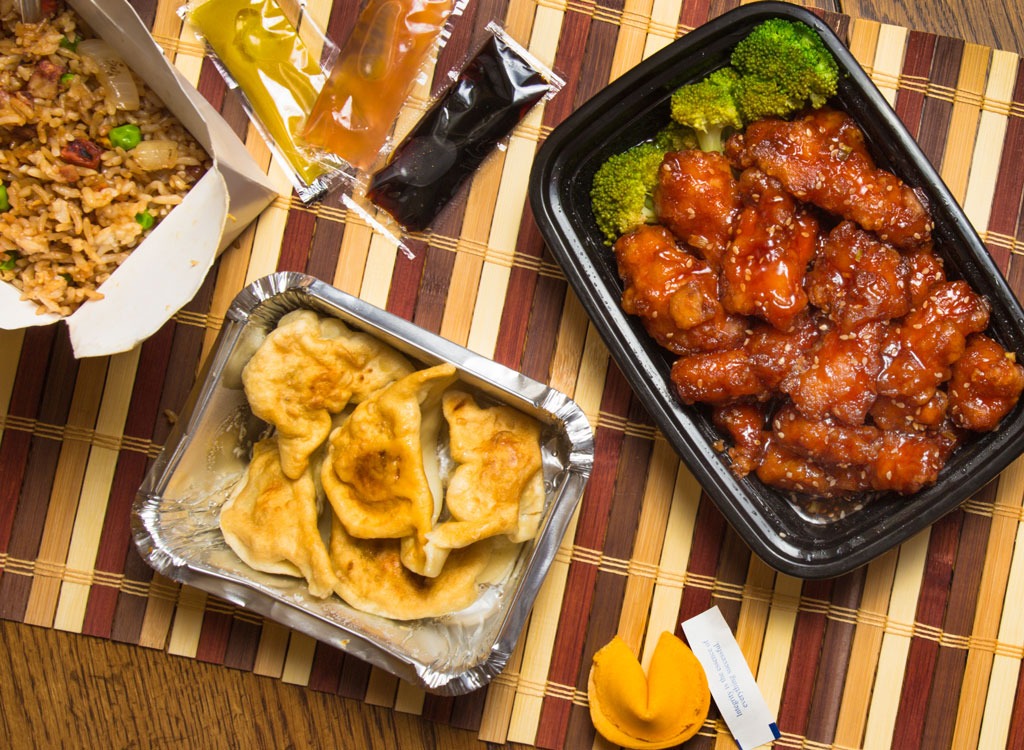
Chalk it up to Chinese takeouts’ fried tempura breading, MSG-spiked meats, sweet sauces, and XL portions. The hefty amounts of fat, salt, and sugar can shock your body enough to elevate your risk of high blood pressure and clot formation post-dinner. In fact, the AHA confirmed that a heavy meal may increase the risk of heart attack by about four times within two hours after eating.
Butter
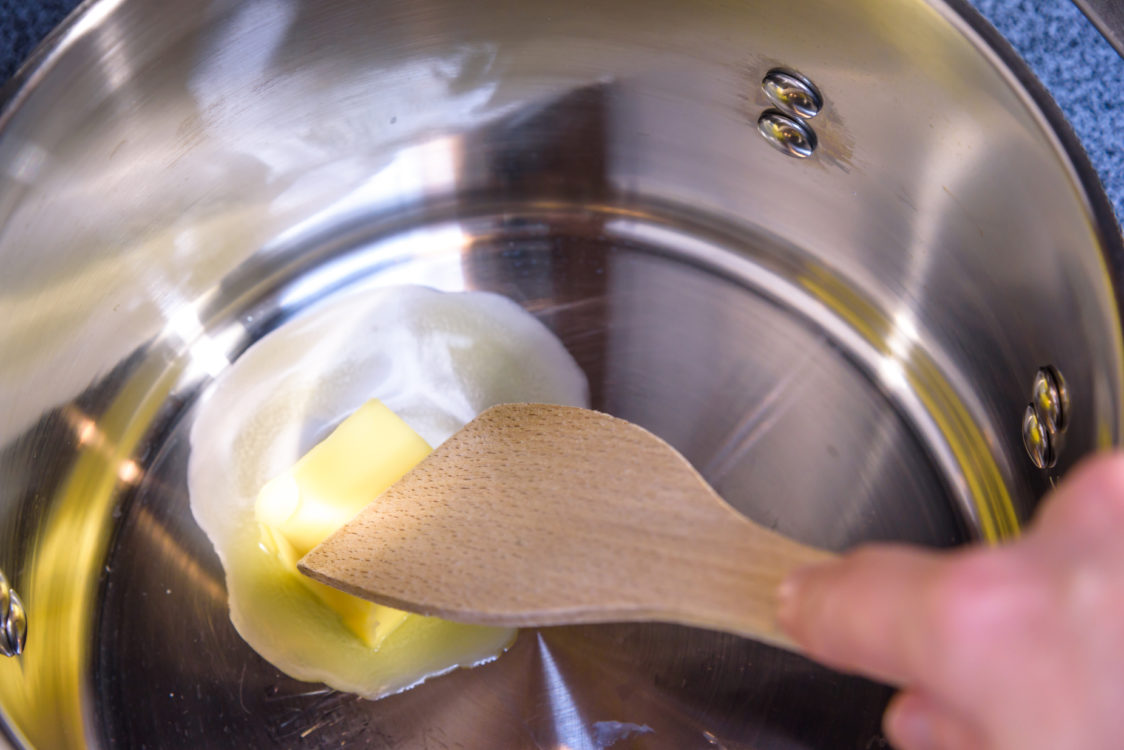
Spreading a teaspoon of butter on whole-grain toast is totally acceptable every so often, but melting it over your pancakes, popcorn, and seafood is spelling out bad news for your pumper. The AHF recommends replacing saturated fats like butter with polyunsaturated fat like flax oil to decrease both LDL cholesterol and your total cholesterol to HDL cholesterol ratio.
Sour Cream
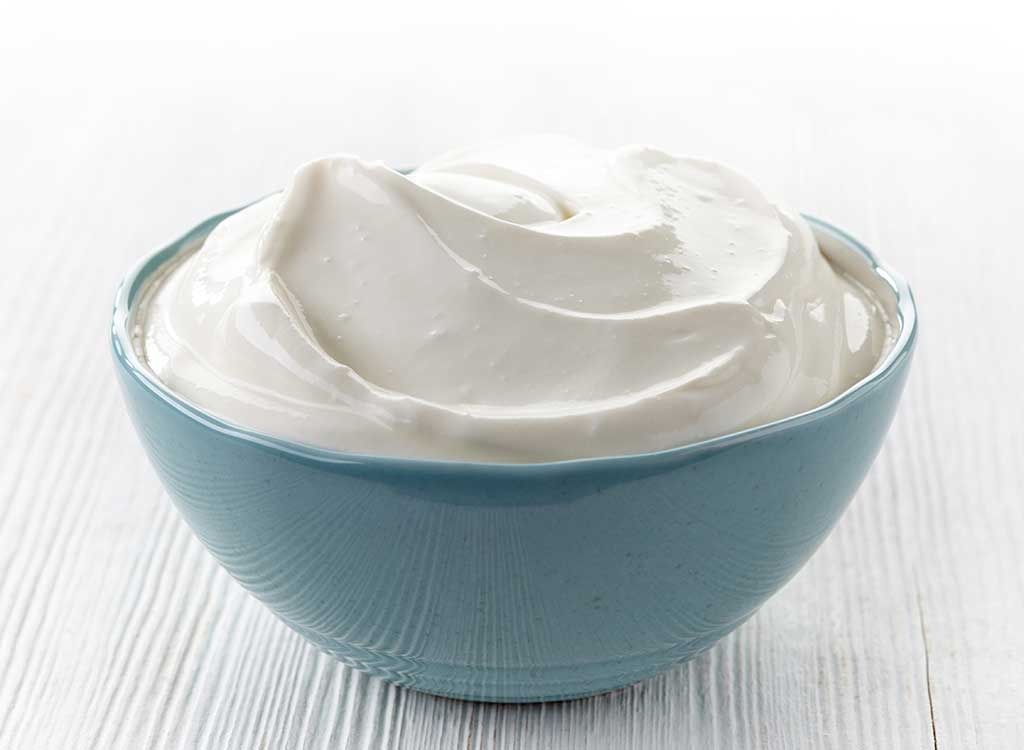
If you’re concerned about your heart’s health, you may not want to spoon sour cream straight out of the tub. Two tablespoons of Daisy’s Sour Cream packs in 3.5 grams of saturated fat, which can rack up quickly if you’re using the creamy stuff as a dip. Try stirring three parts plain Greek yogurt with one part sour cream for an irresistible topper.
Salad Dressings
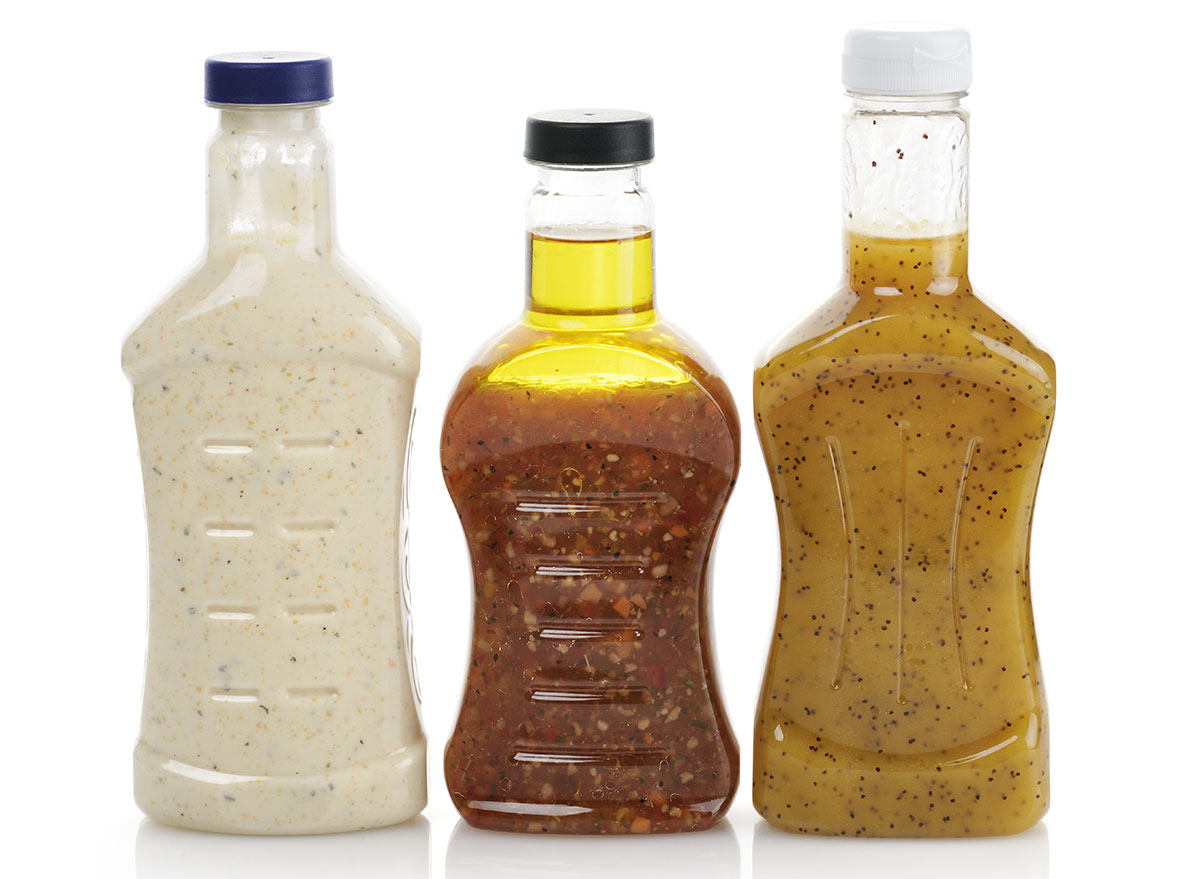
Salad dressings such as honey mustard, Italian, and ranch are often hidden sources of sugar and salt. A diet high in sugar can promote increased fat storage while high sodium intake can increase blood pressure—two major risks for developing cardiovascular disease. Skip the bottled stuff, and opt for dressing your salads in extra virgin olive oil, lemon, and a dash of salt.
Restaurant Soup
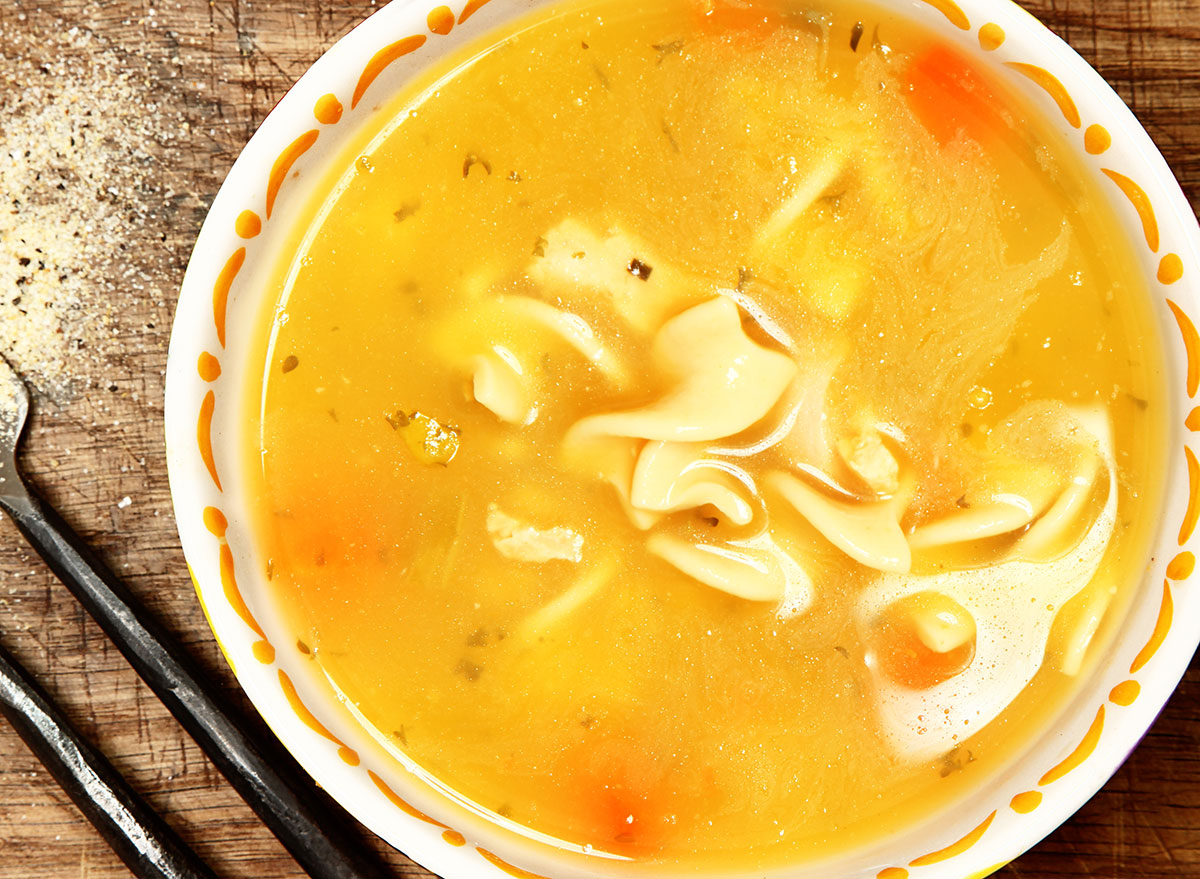
Ordering soup before your meal may seem like a sound way to fill up and cut calories by eating less of your main course—except your efforts can backfire if the broth you ordered is jam-packed with sodium. Take this: P.F. Chang’s Hot and Sour Soup Bowl manages to pack in 3,800 milligrams of the stuff.
Fried Chicken
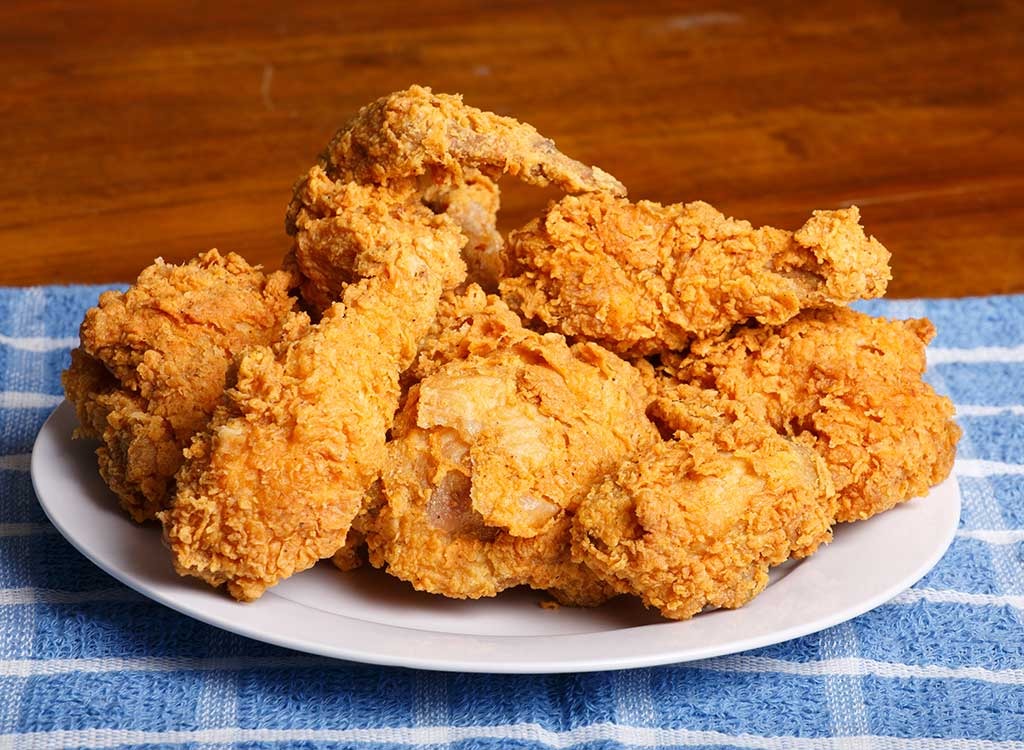
Ordering a bucket of fried chicken may be a convenient and inexpensive dinner option. However, one too many visits to Colonel Sanders’ house could end up hiking up your medical bills. Only one piece of KFC’s Original Recipe Chicken Thighs packs in 19 grams of fat and 910 milligrams of sodium—two macros that can hike up your risk of heart disease.
Fat-Free Products
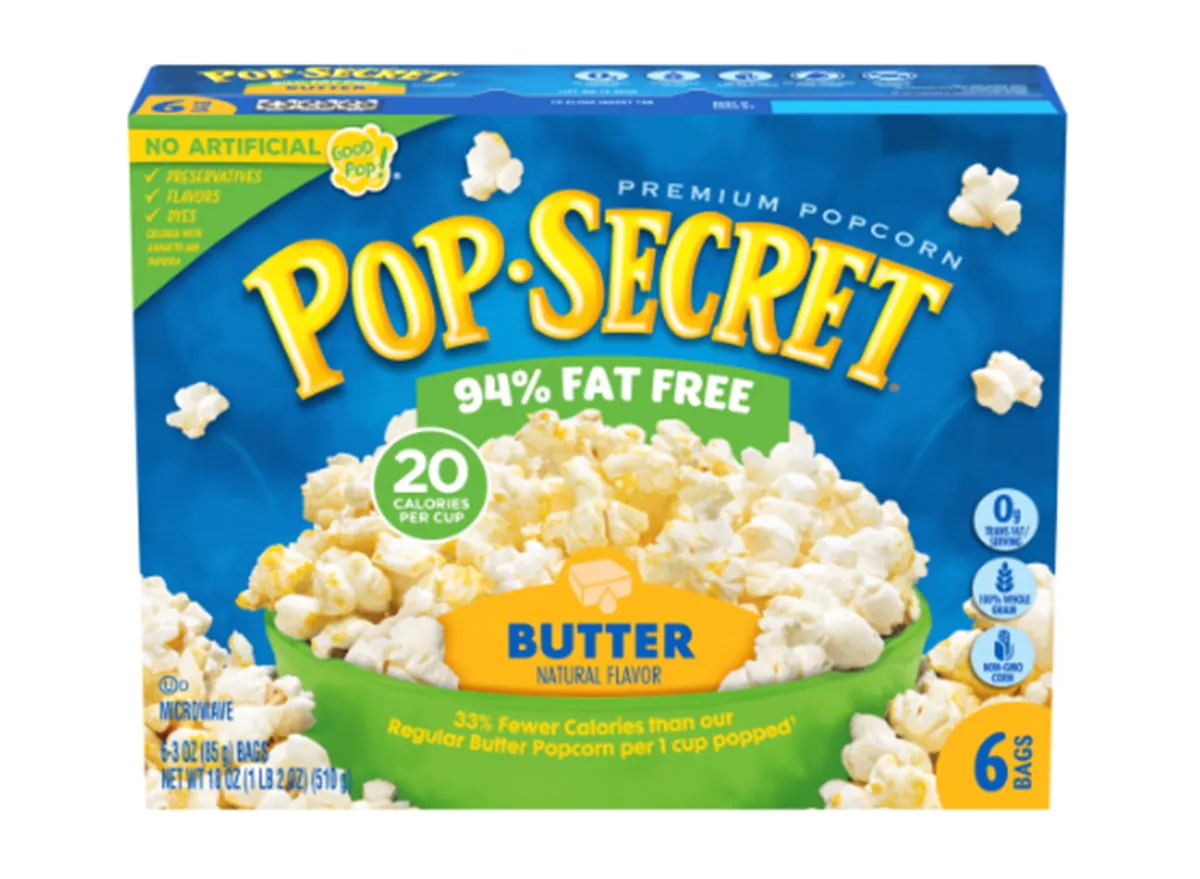
Back in the 1970s, fat-free products were touted as a healthy option for individuals wanting to lose weight and maintain a healthier lifestyle. Contrary to that outdated belief, we now know that when manufacturers remove fat from foods, they usually add in extra sugar to maintain the taste and texture of the packaged goods. A good rule of thumb is to avoid purchasing any product that is not normally fat-free. Read food labels and ingredient lists to determine many grams of sugar may have been added as a fat substitute.
Flavored Milk Alternatives

Thought replacing your 2% dairy milk with vanilla almond milk was a smart choice? Ever since dairy milk got a bad rap, milk alternatives have risen to prominence, and some definitely don’t deserve the recognition. Flavored and sweetened versions often contain processed sugar and skimp out on cardio-protective fats.
Smoothies
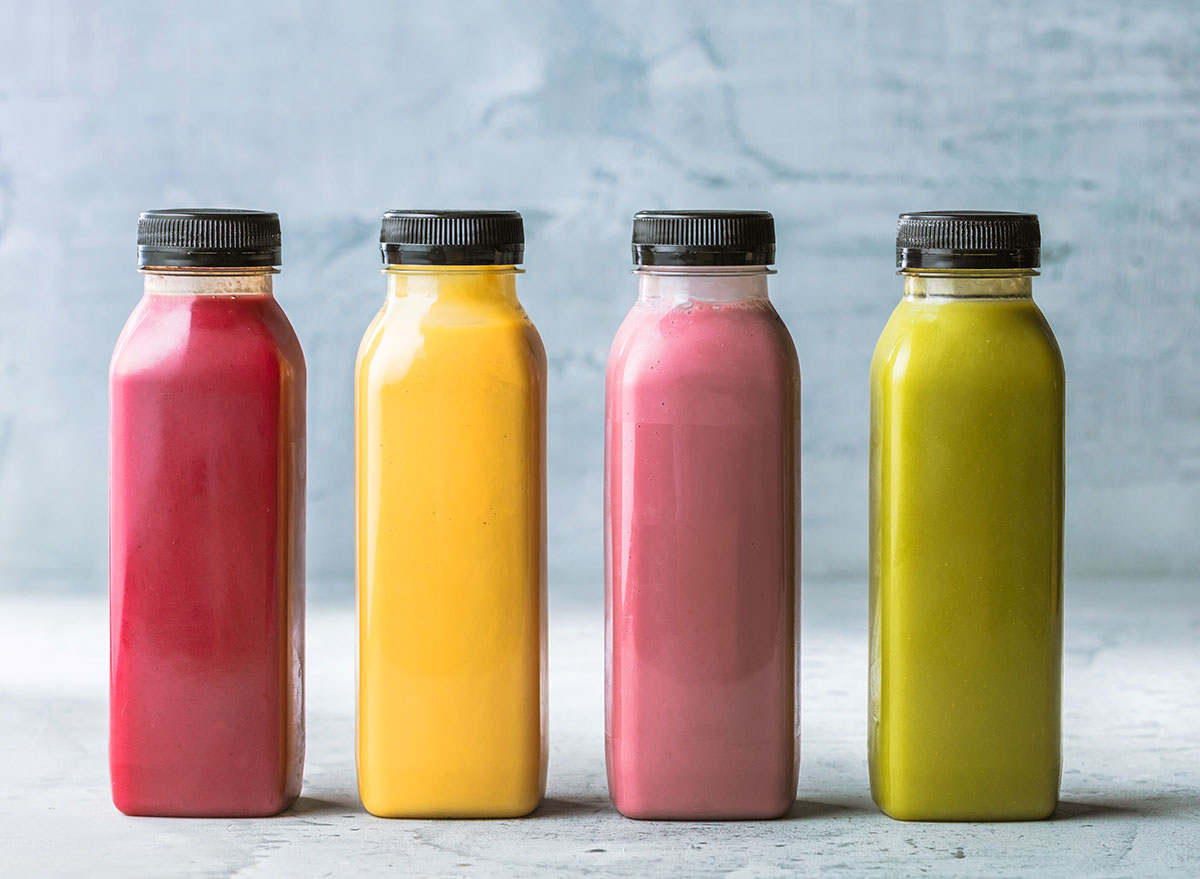
In theory, a green smoothie is the picture of health. But if you’re purchase a fruit and veggie shake instead of blending your own at home, expect to sip on a lot more sugar than you bargained for. Plus, most of the sugar comes from fruit-derived fructose, which has been shown to elevate blood triglycerides, as well as increase belly fat.
Tomato Juice
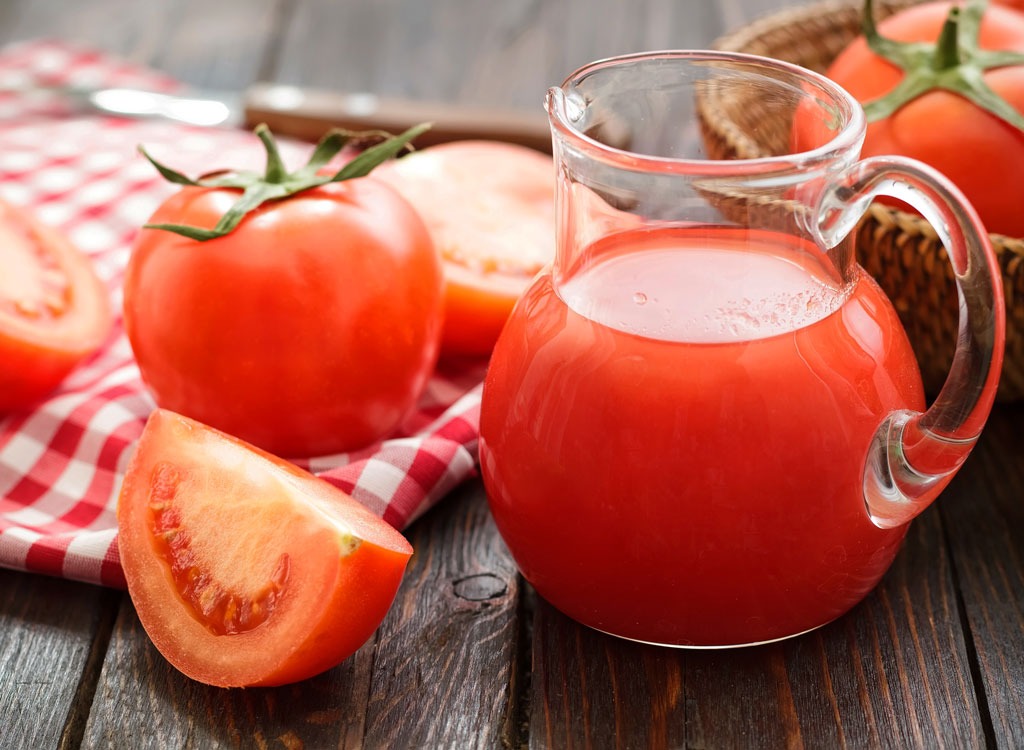
Sure, it’s made with your favorite fruit and packs in a solid dose of vitamins—but one look at the sodium content deems many bottles a total nightmare. For example, Campbell’s canned tomato juice sneaks in a whopping 670 milligrams of sodium. You’re better off busting out the juicer and preparing the Bloody Mary staple yourself.
Barbecue Sauce
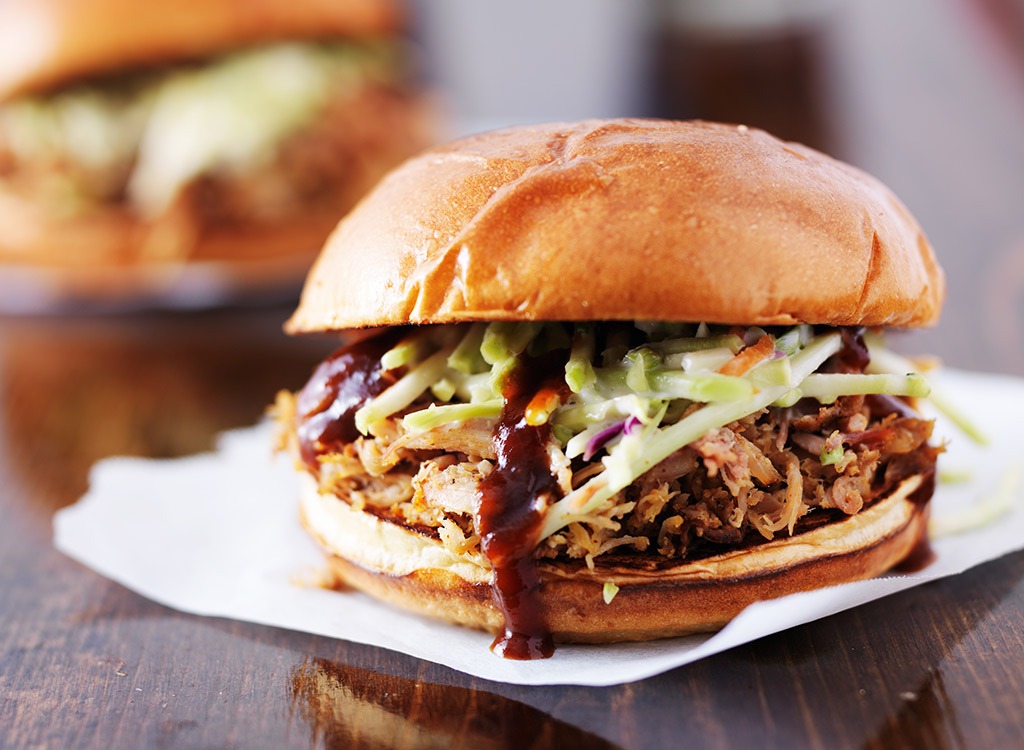
With barbecue season slowly approaching, you may want to rid your pantry of sugar-laden barbecue sauce. Consider this: Only two tablespoons of Sweet Baby Ray’s Barbecue Sauce contain about the same amount of sugar in one Krispy Kreme Chocolate Iced Custard Filled donut. Yikes!
